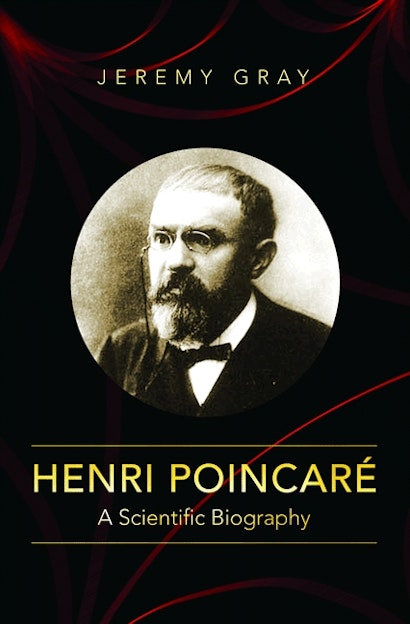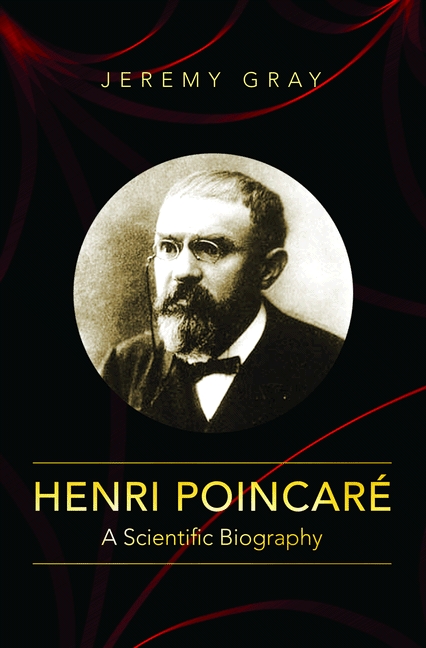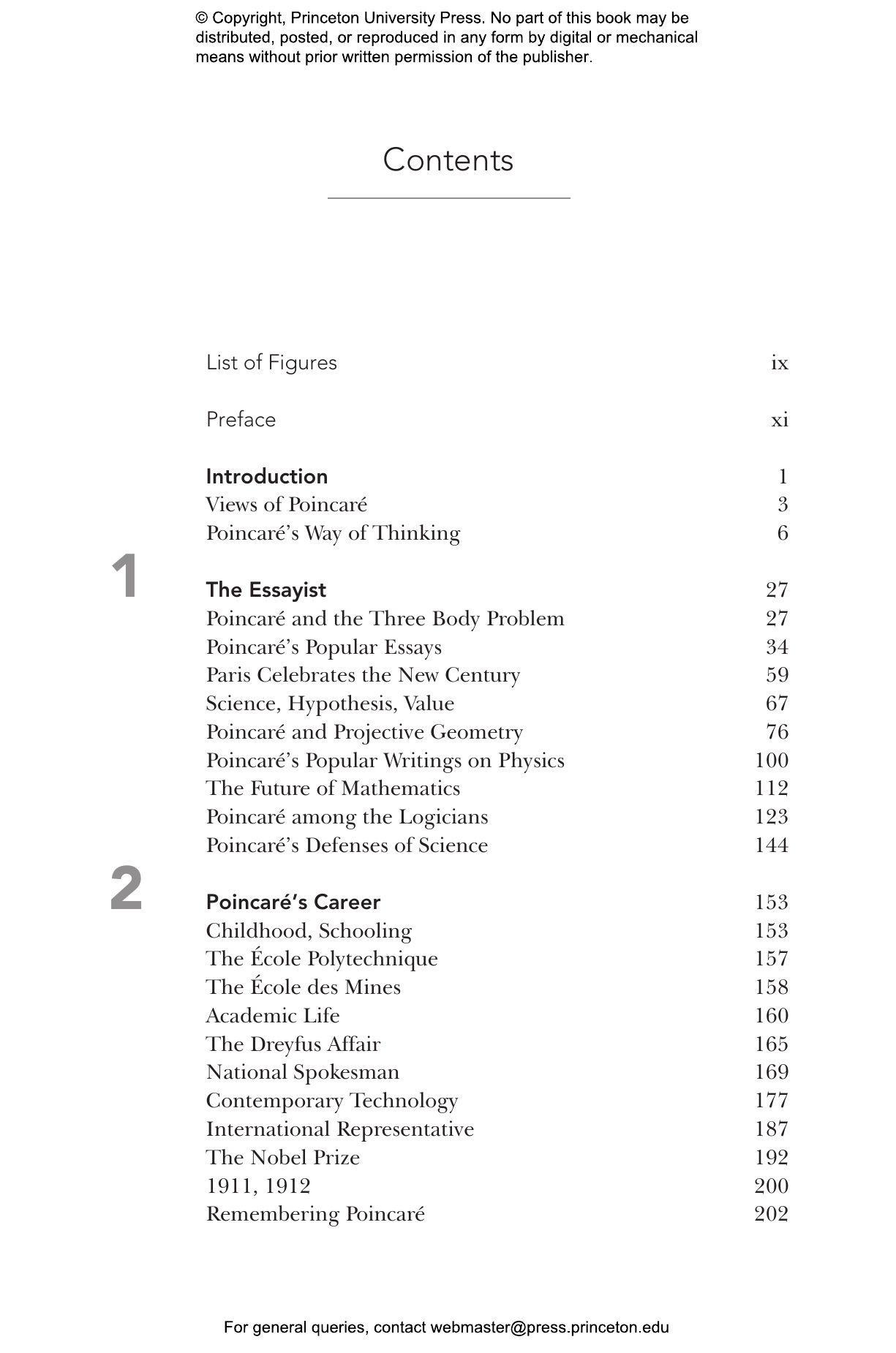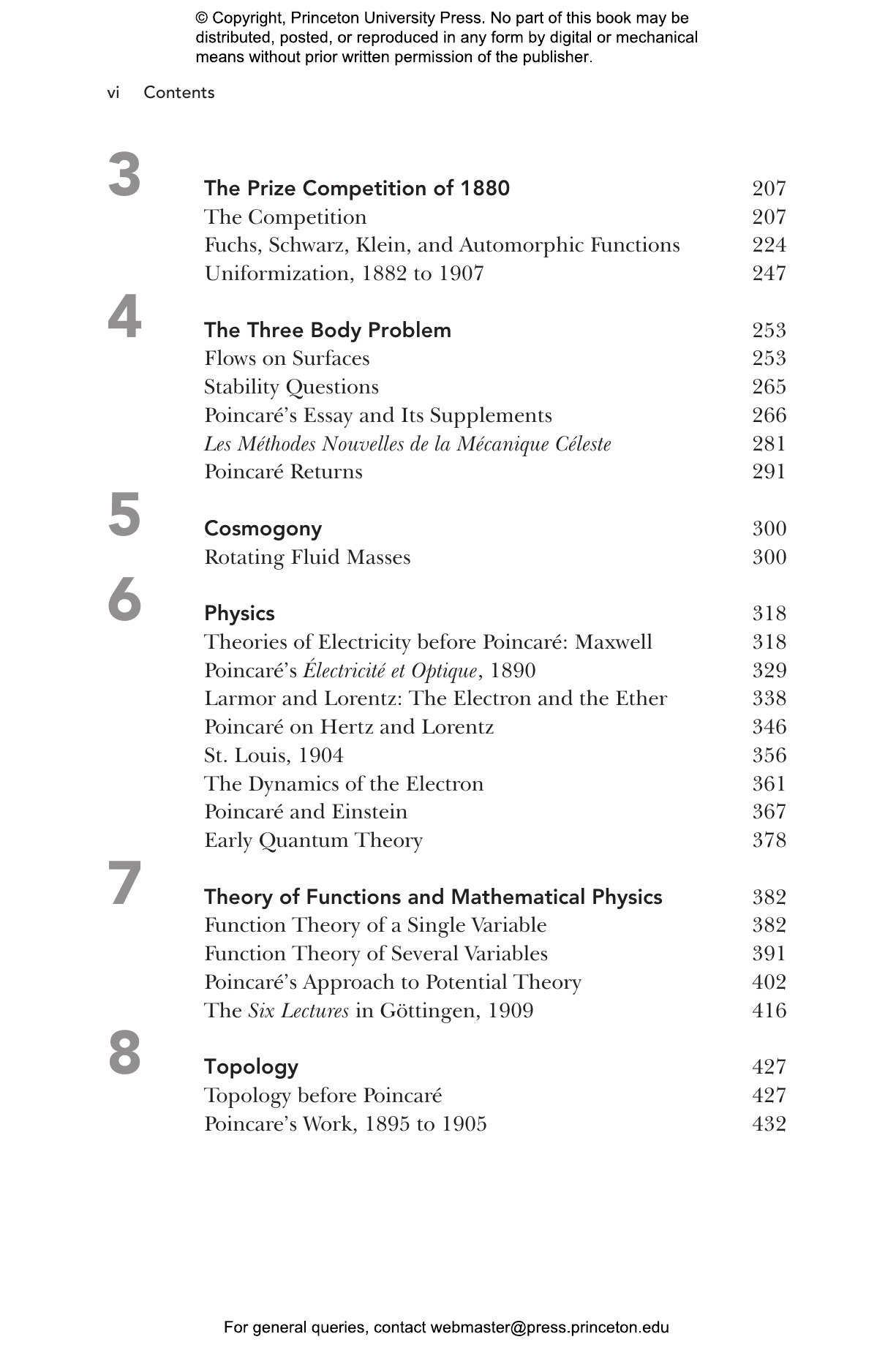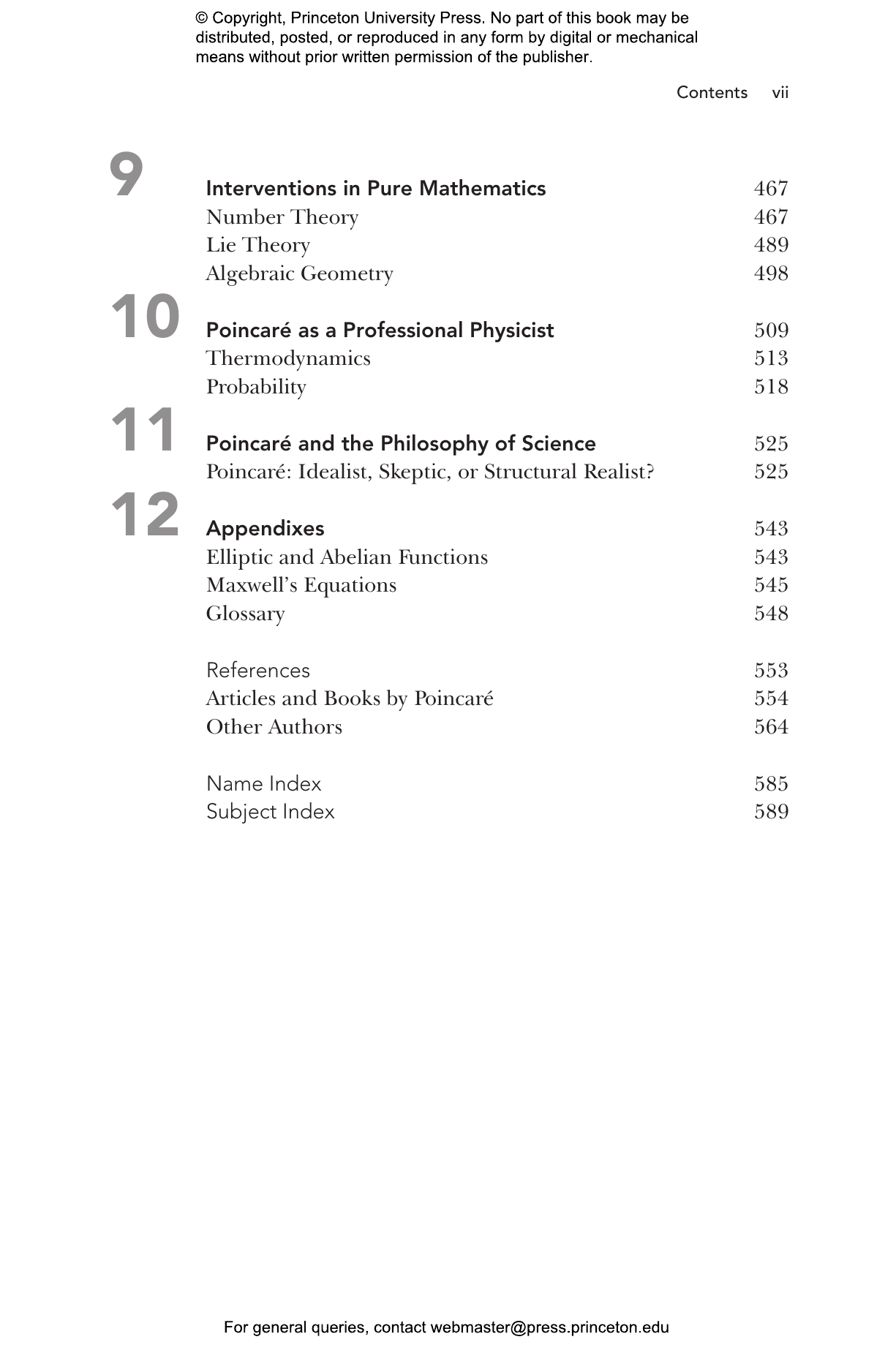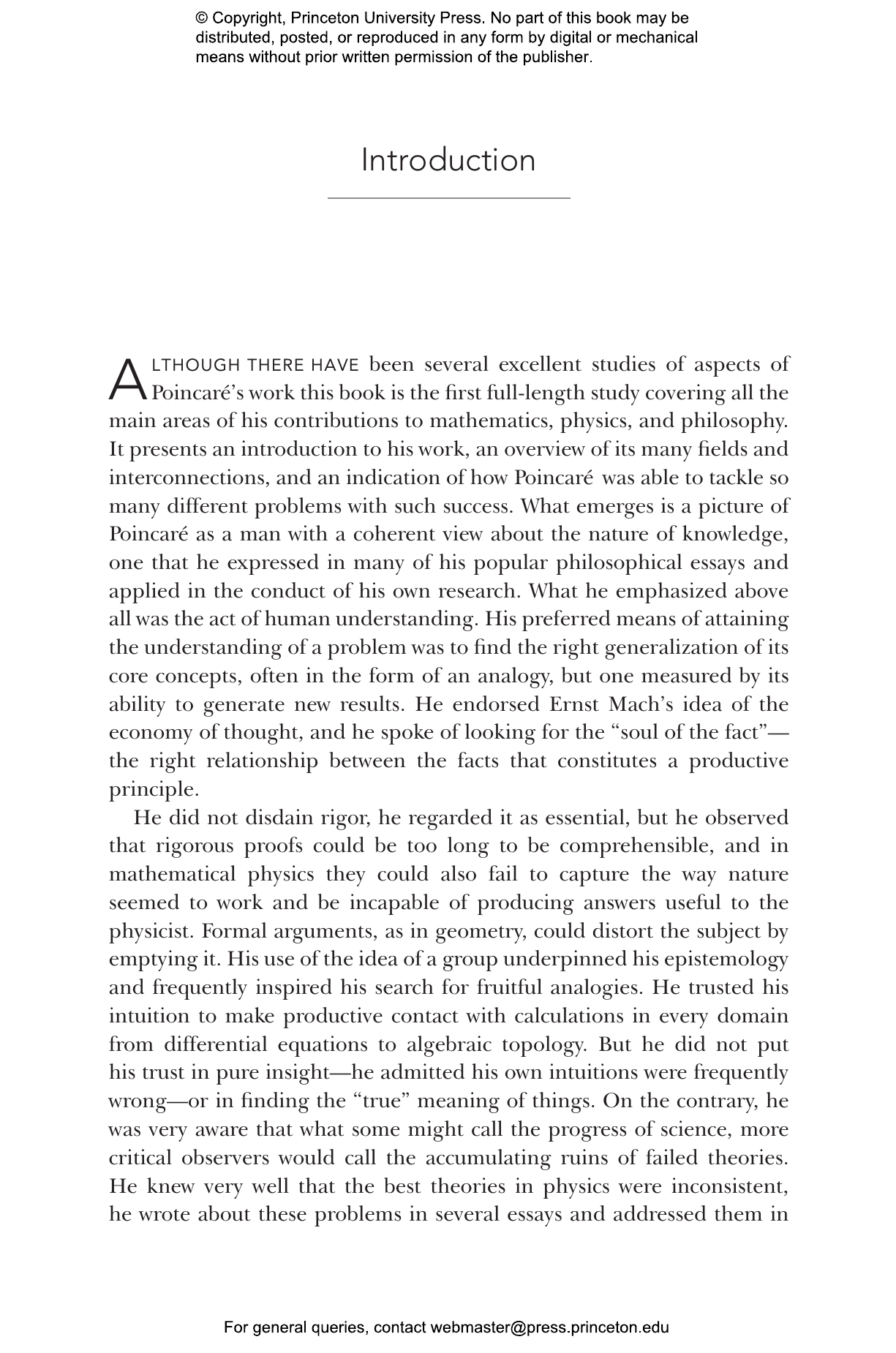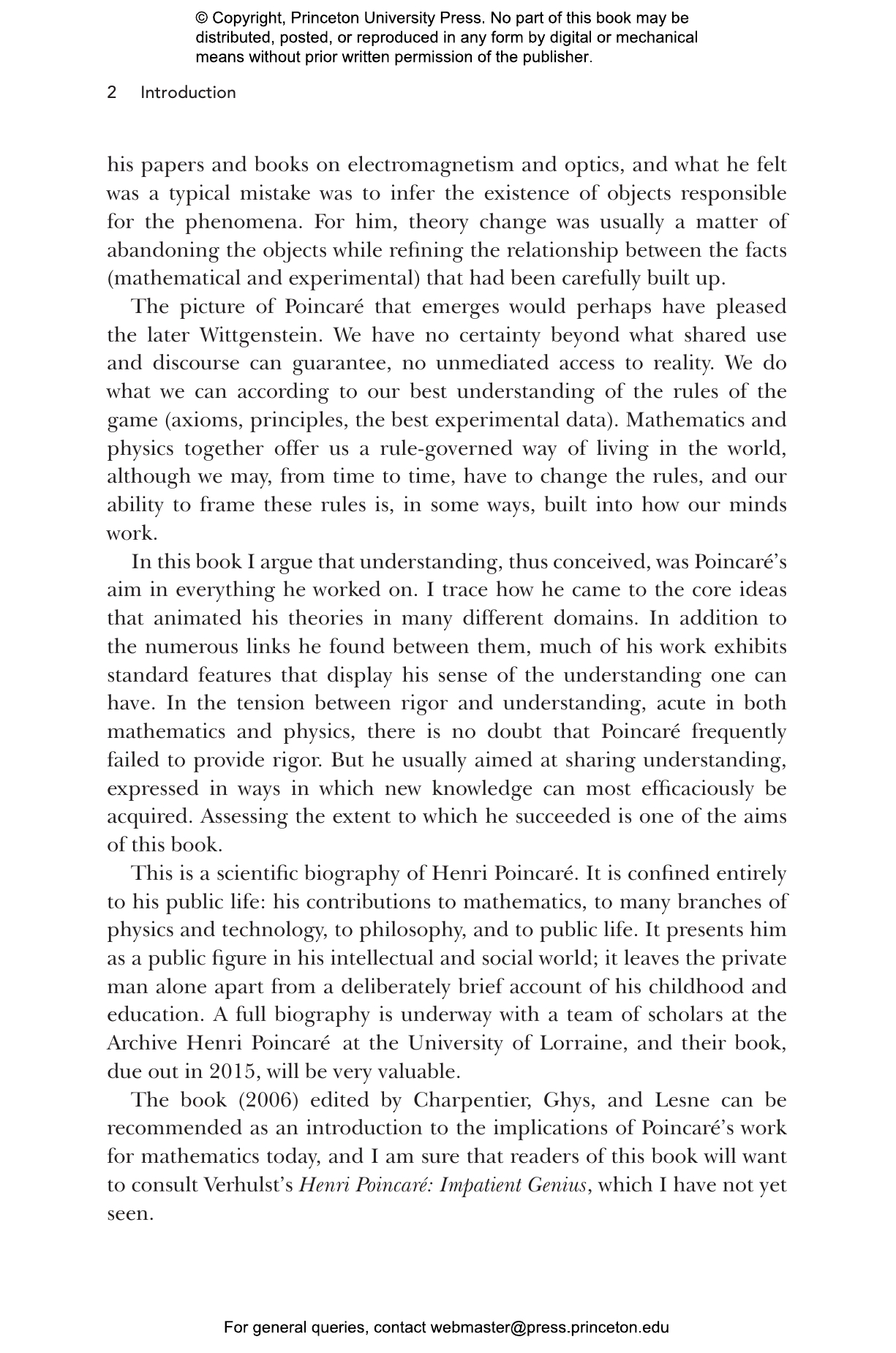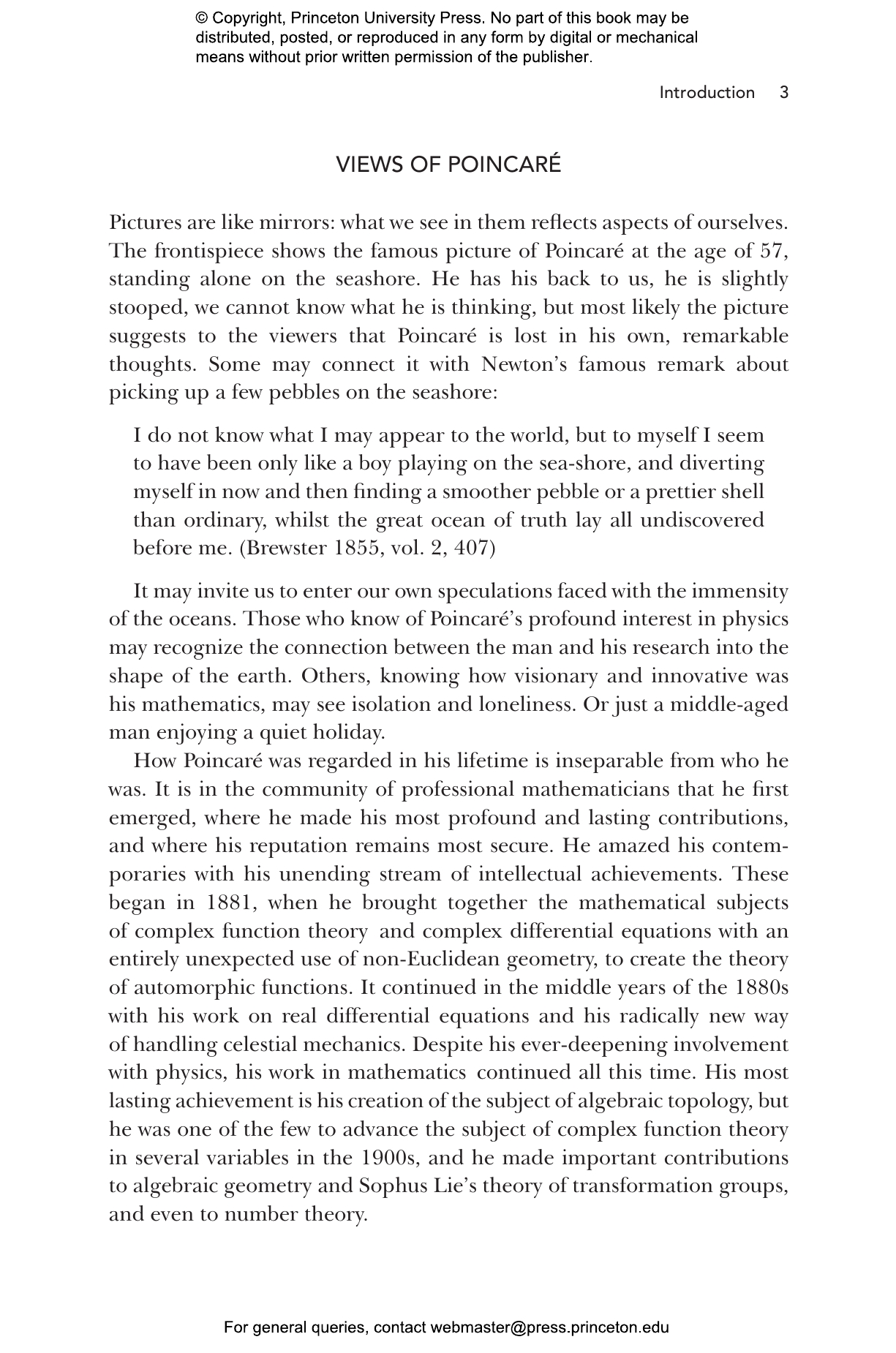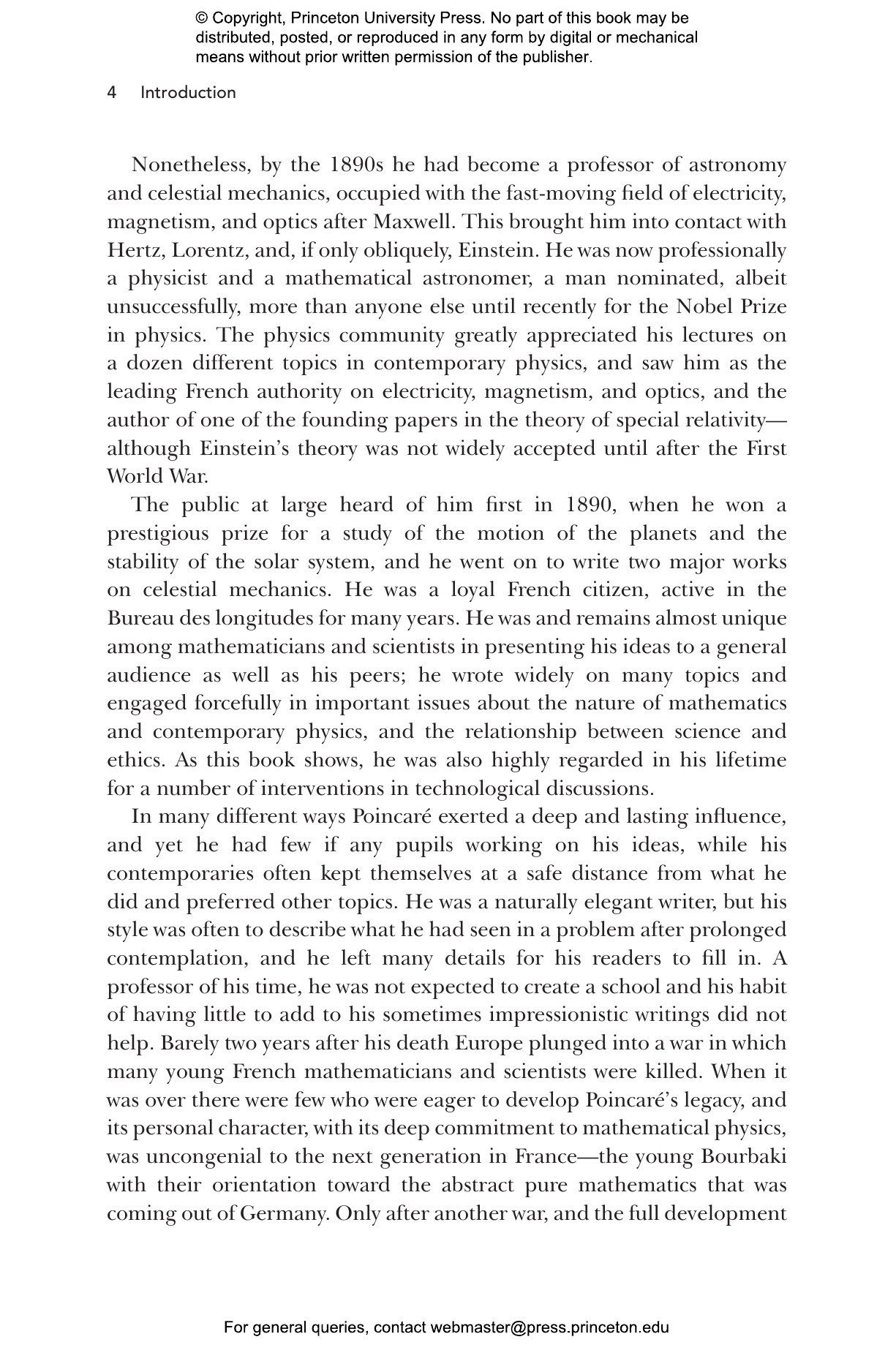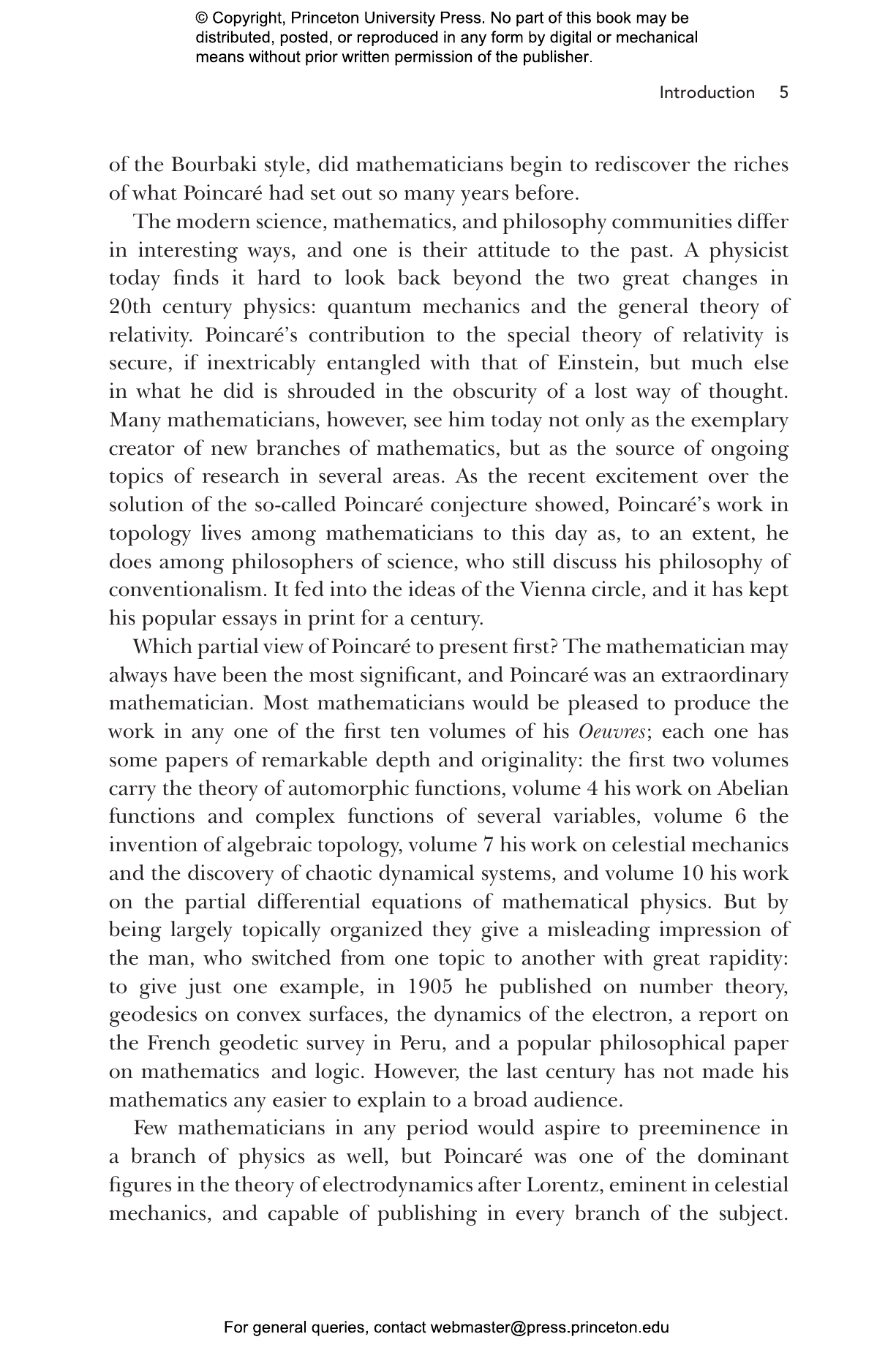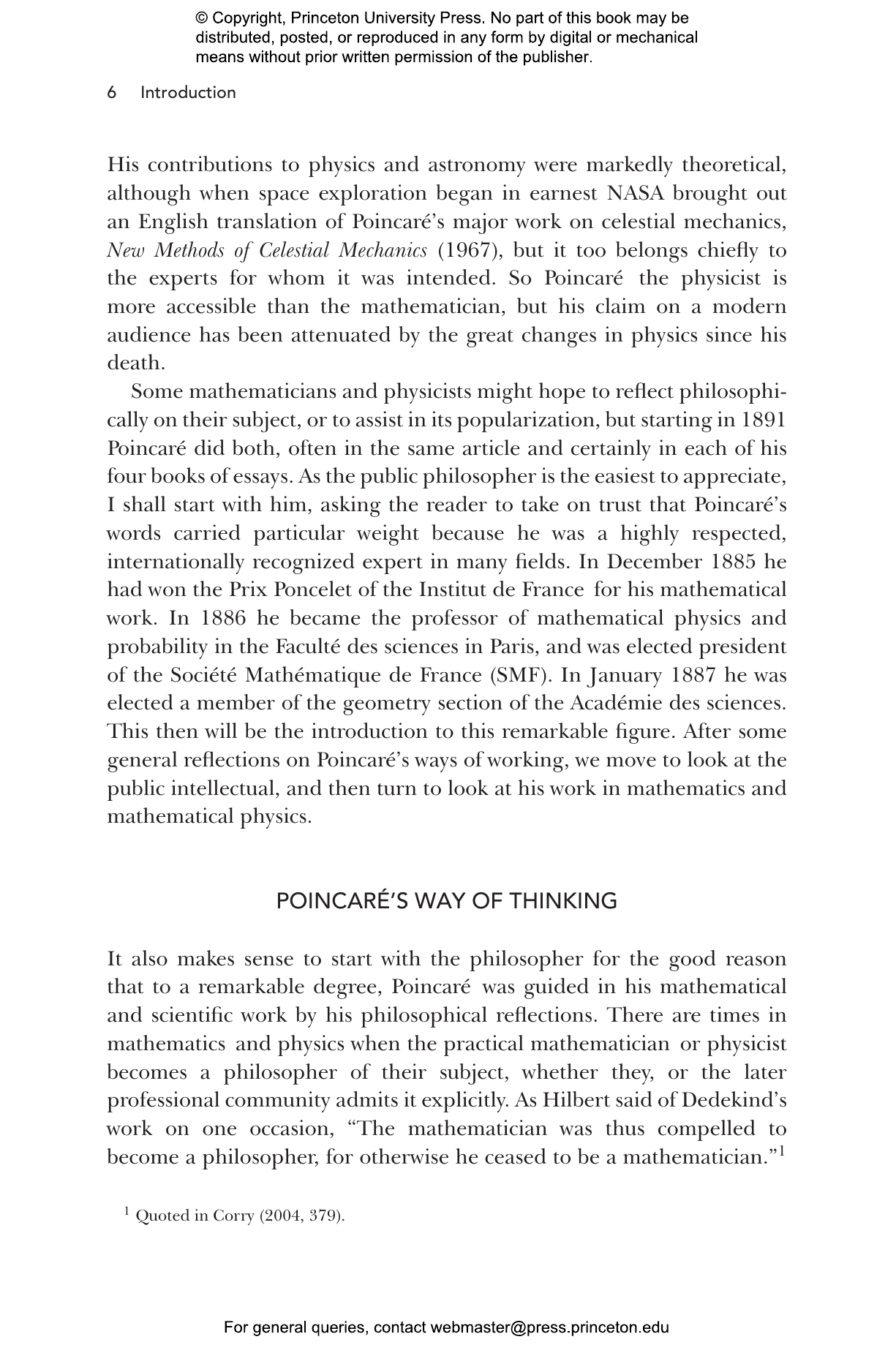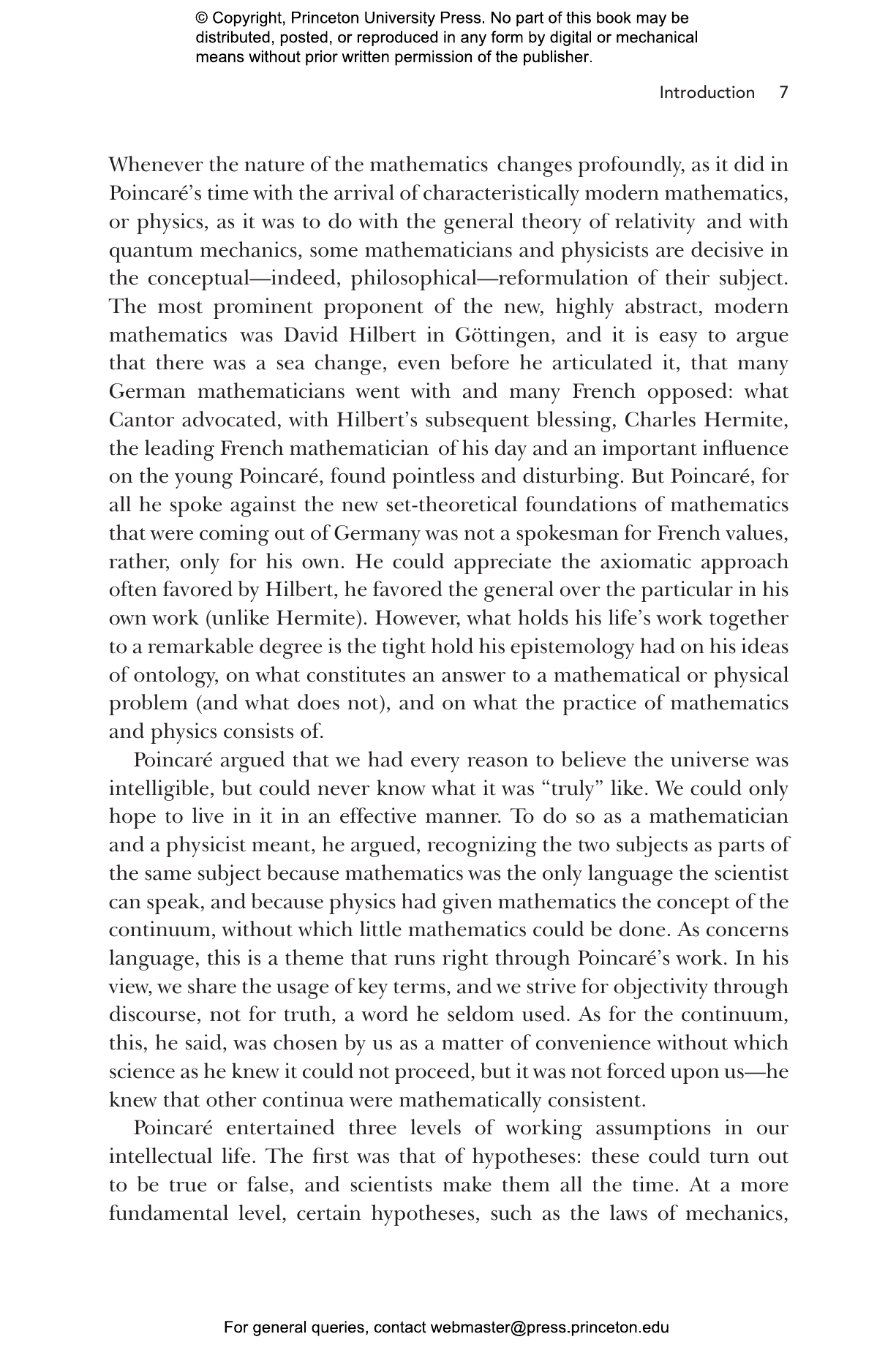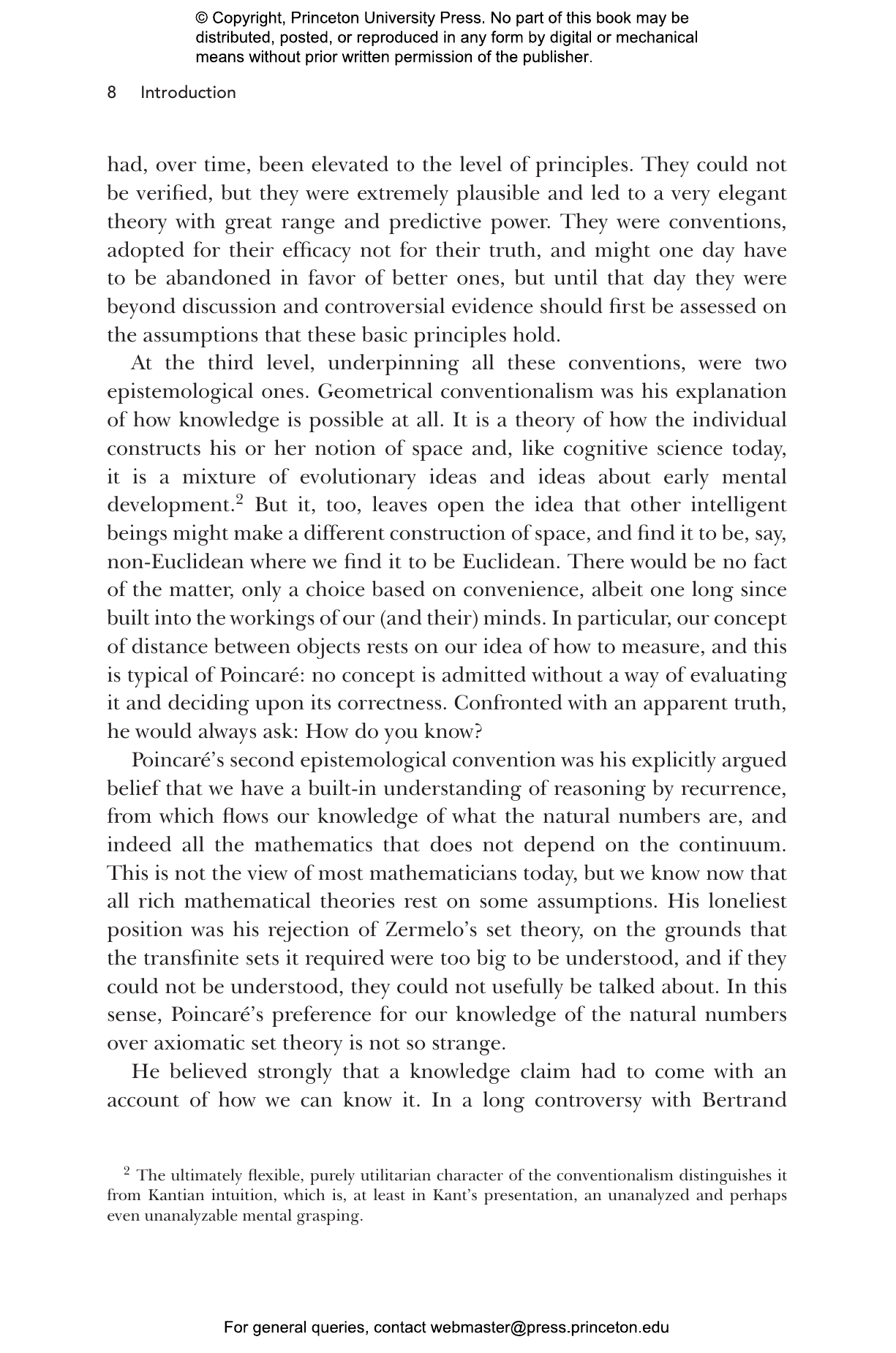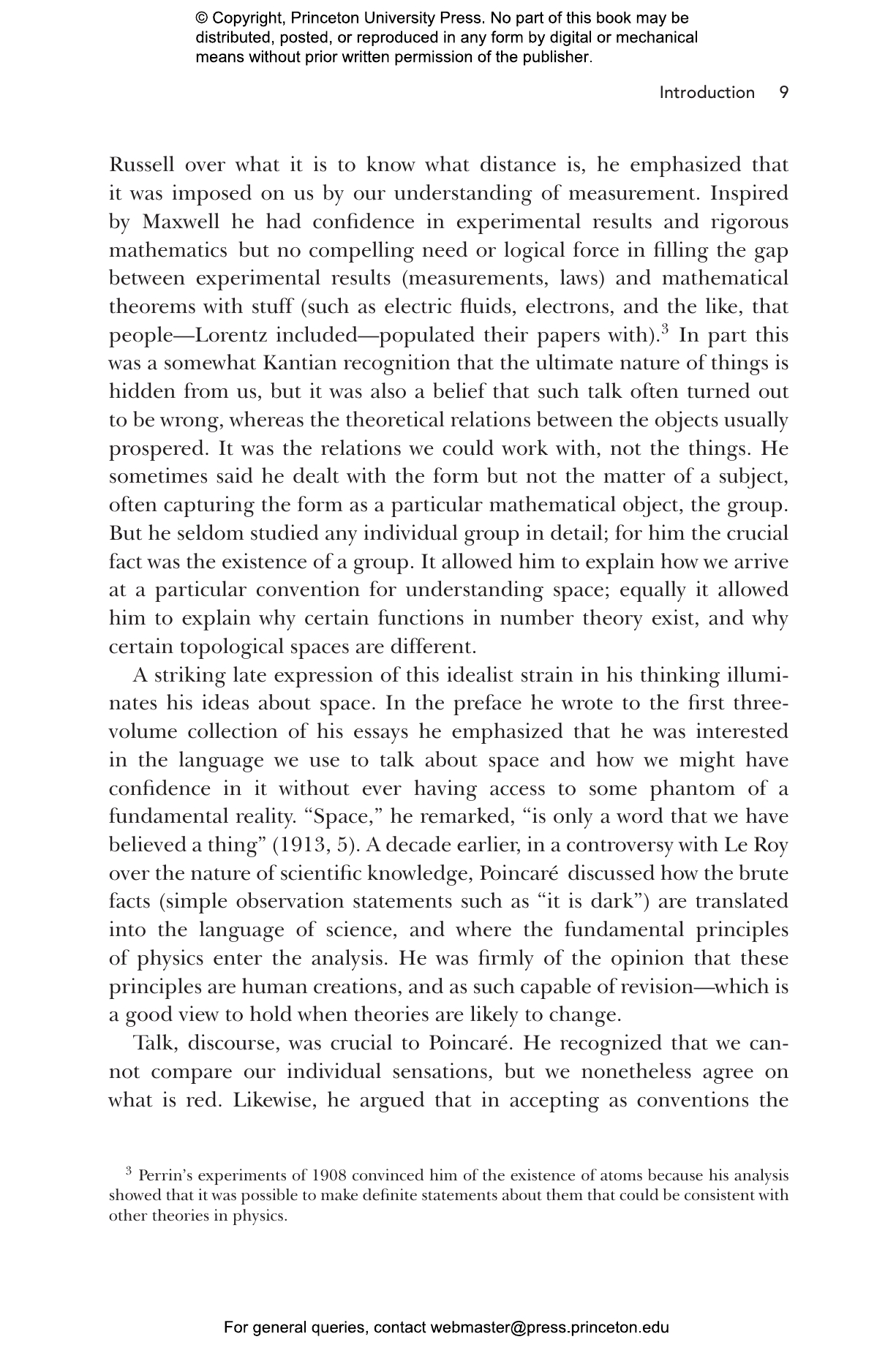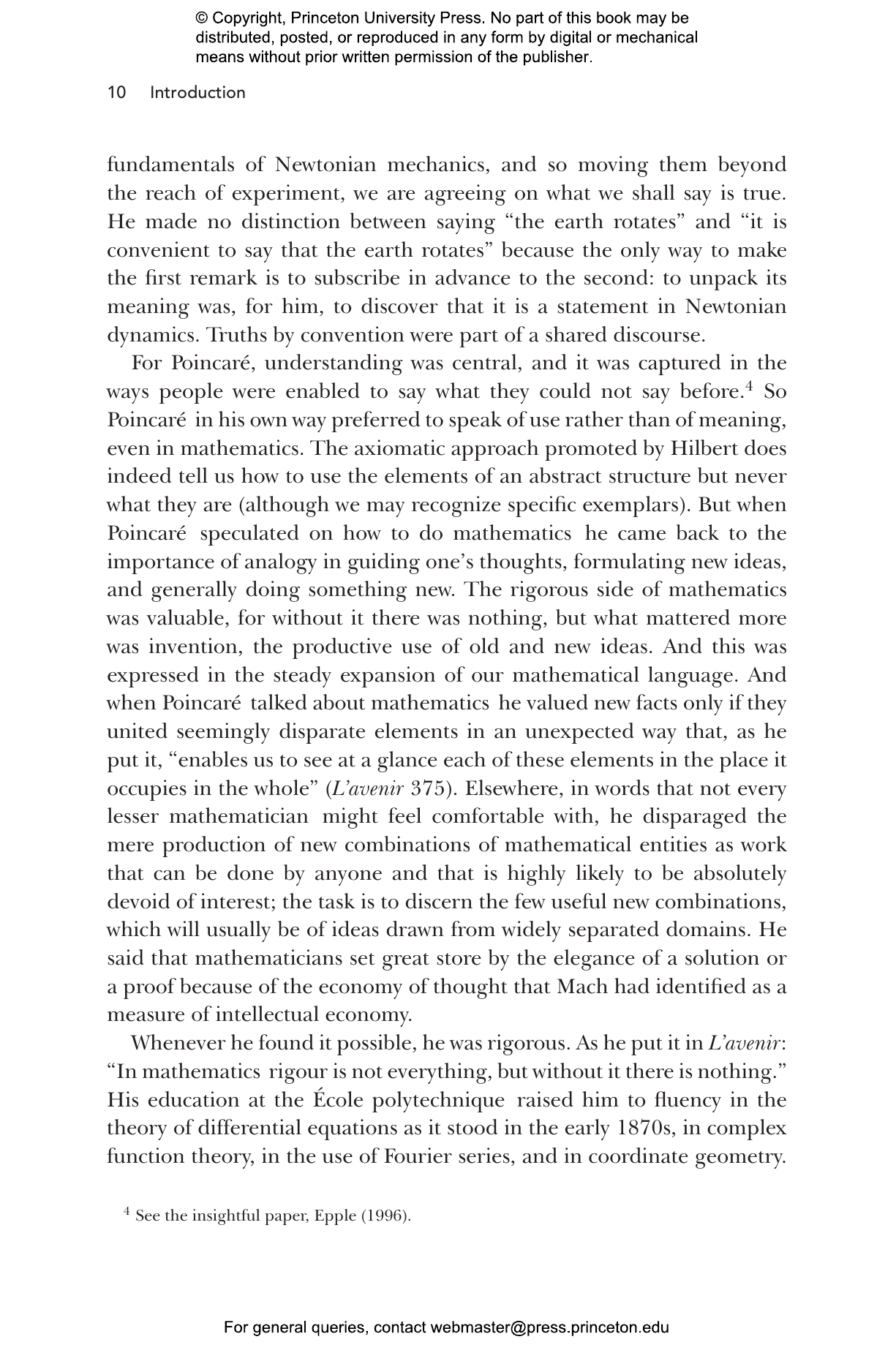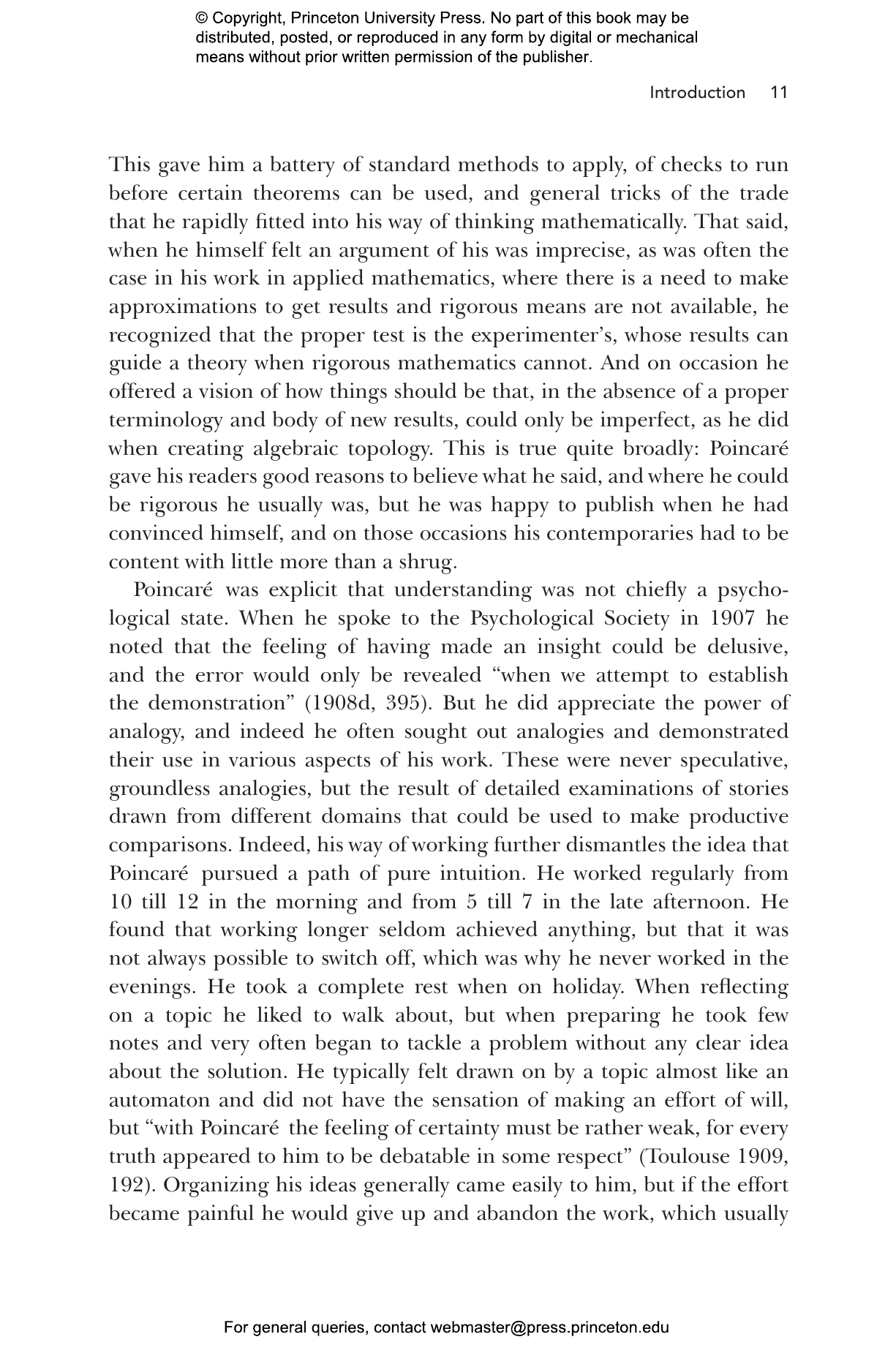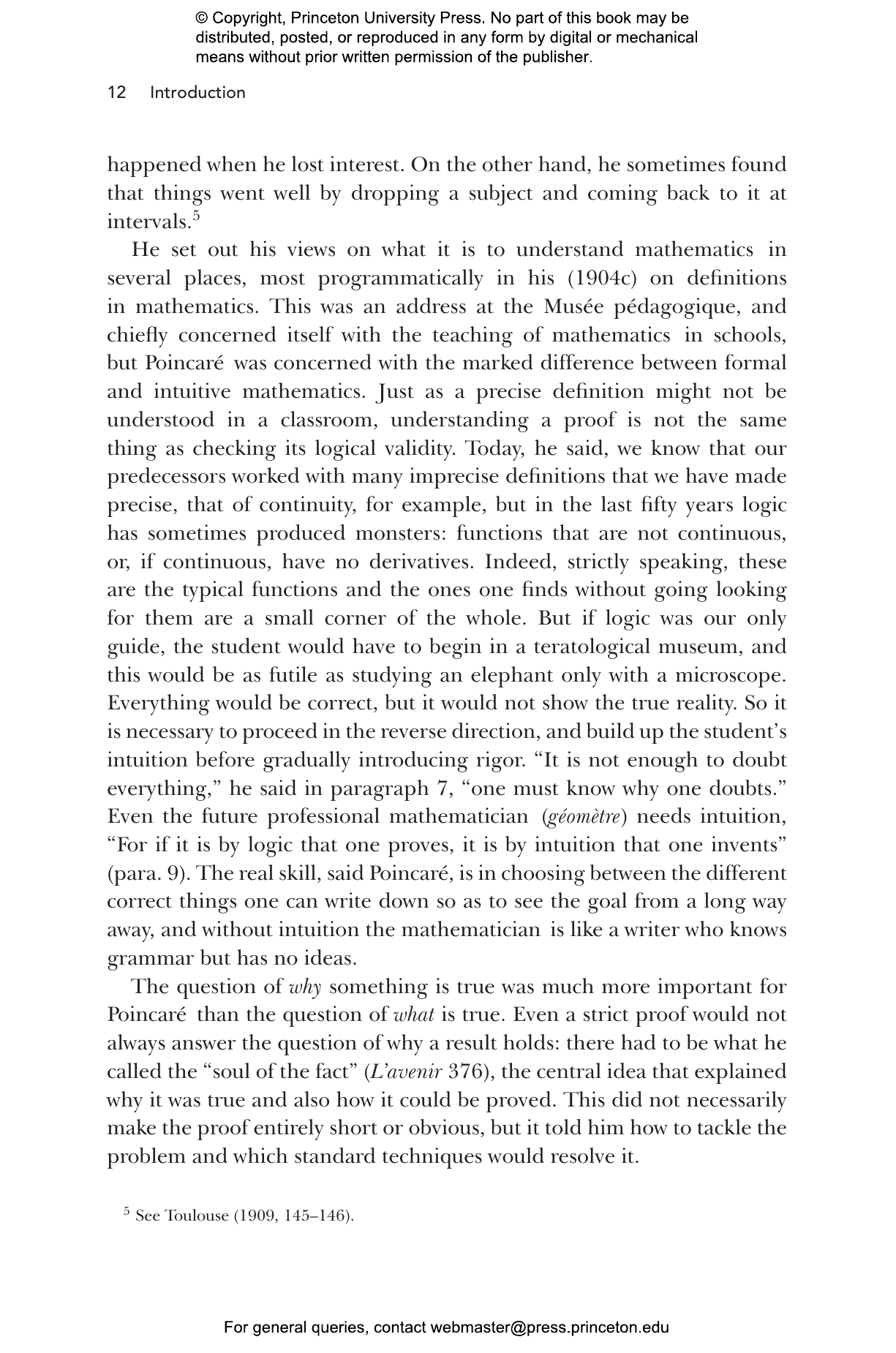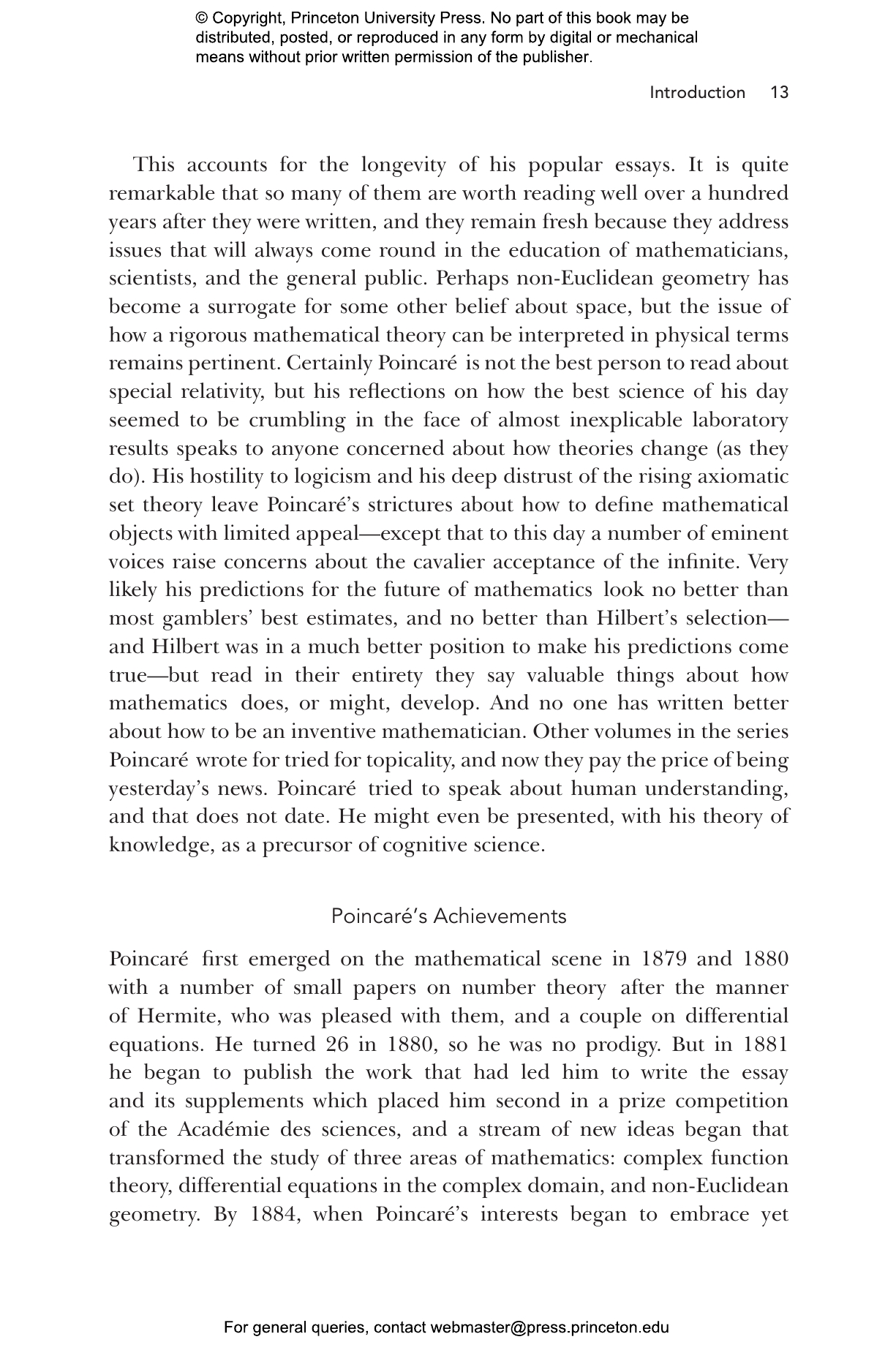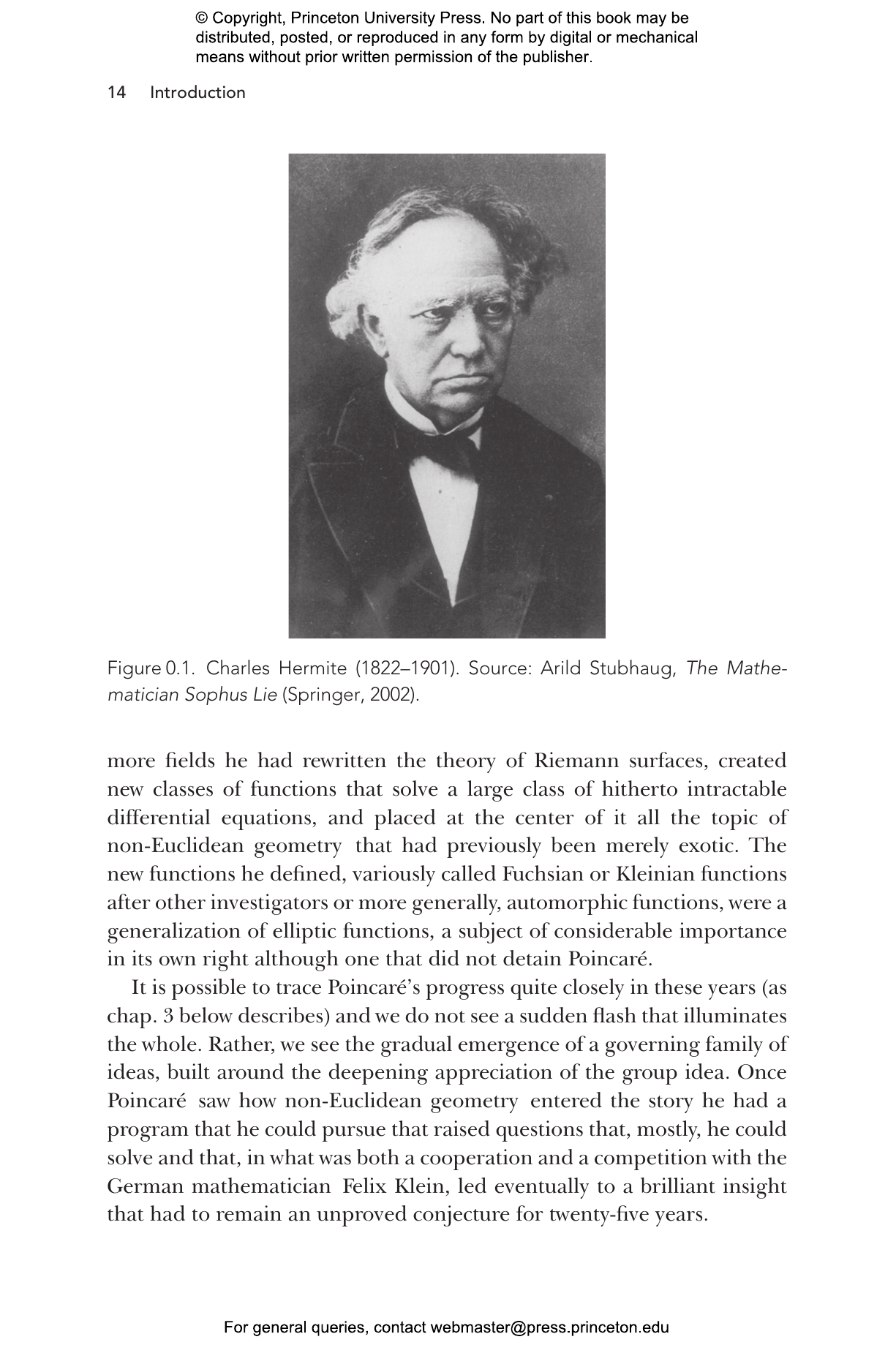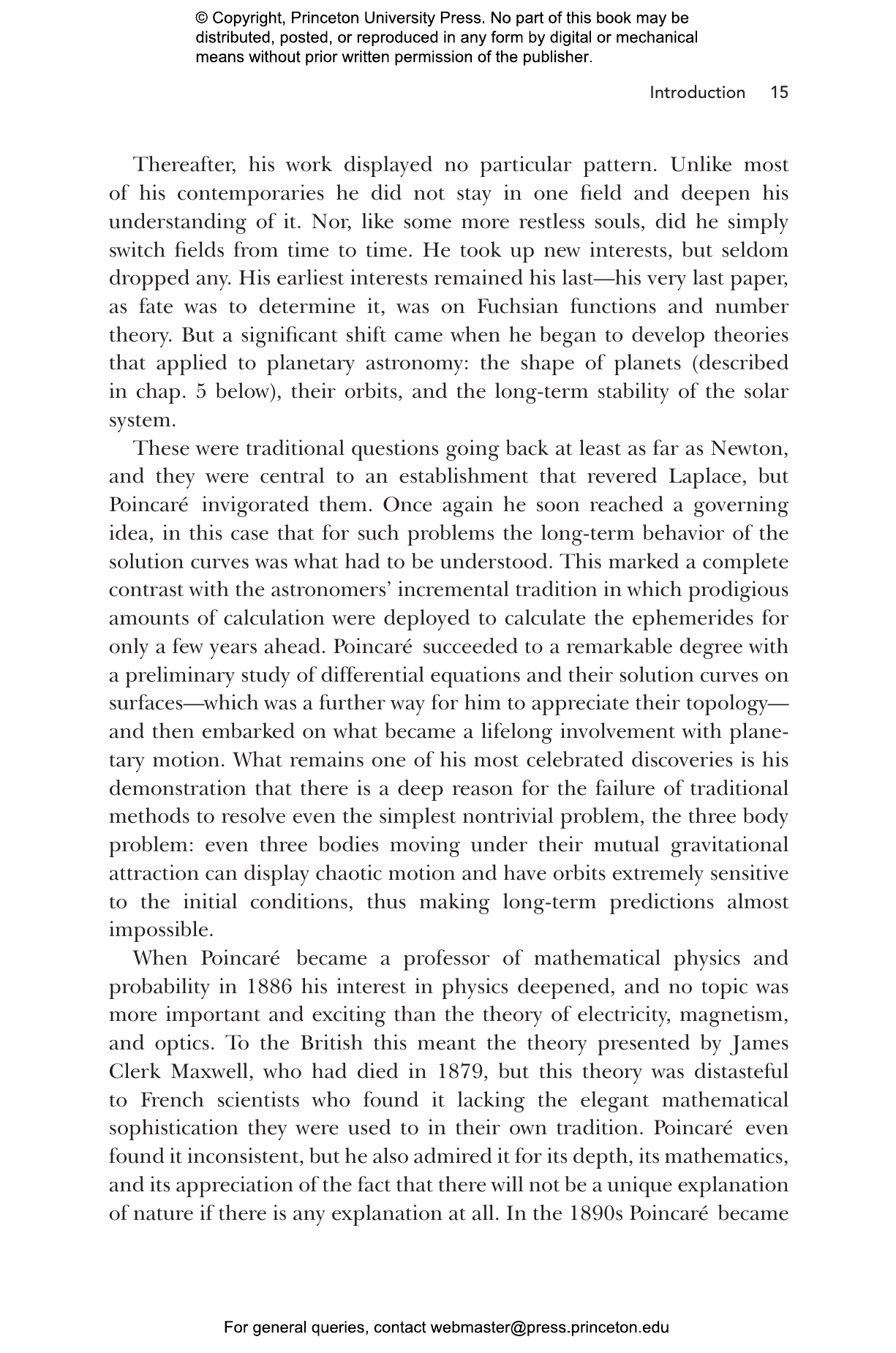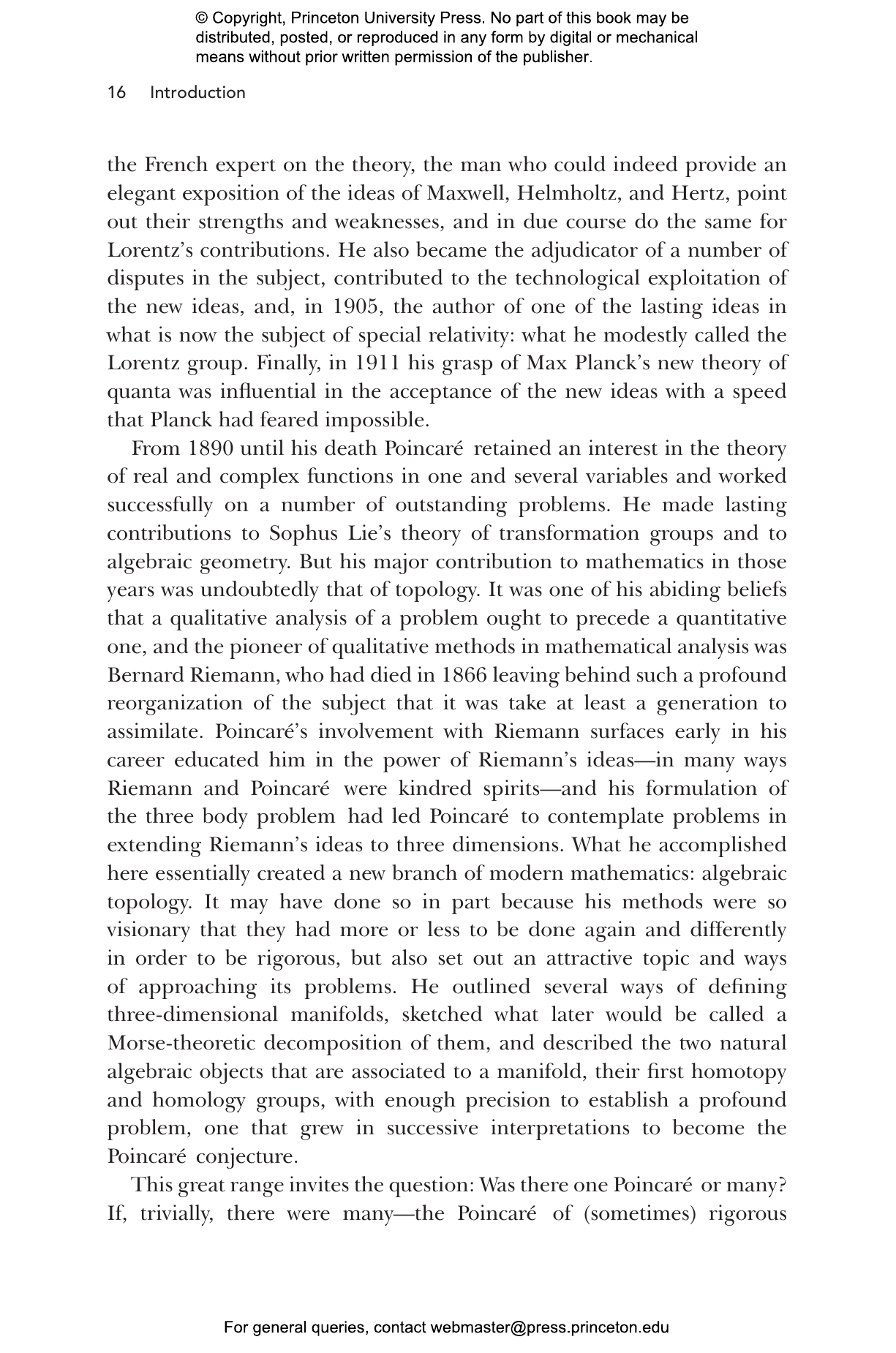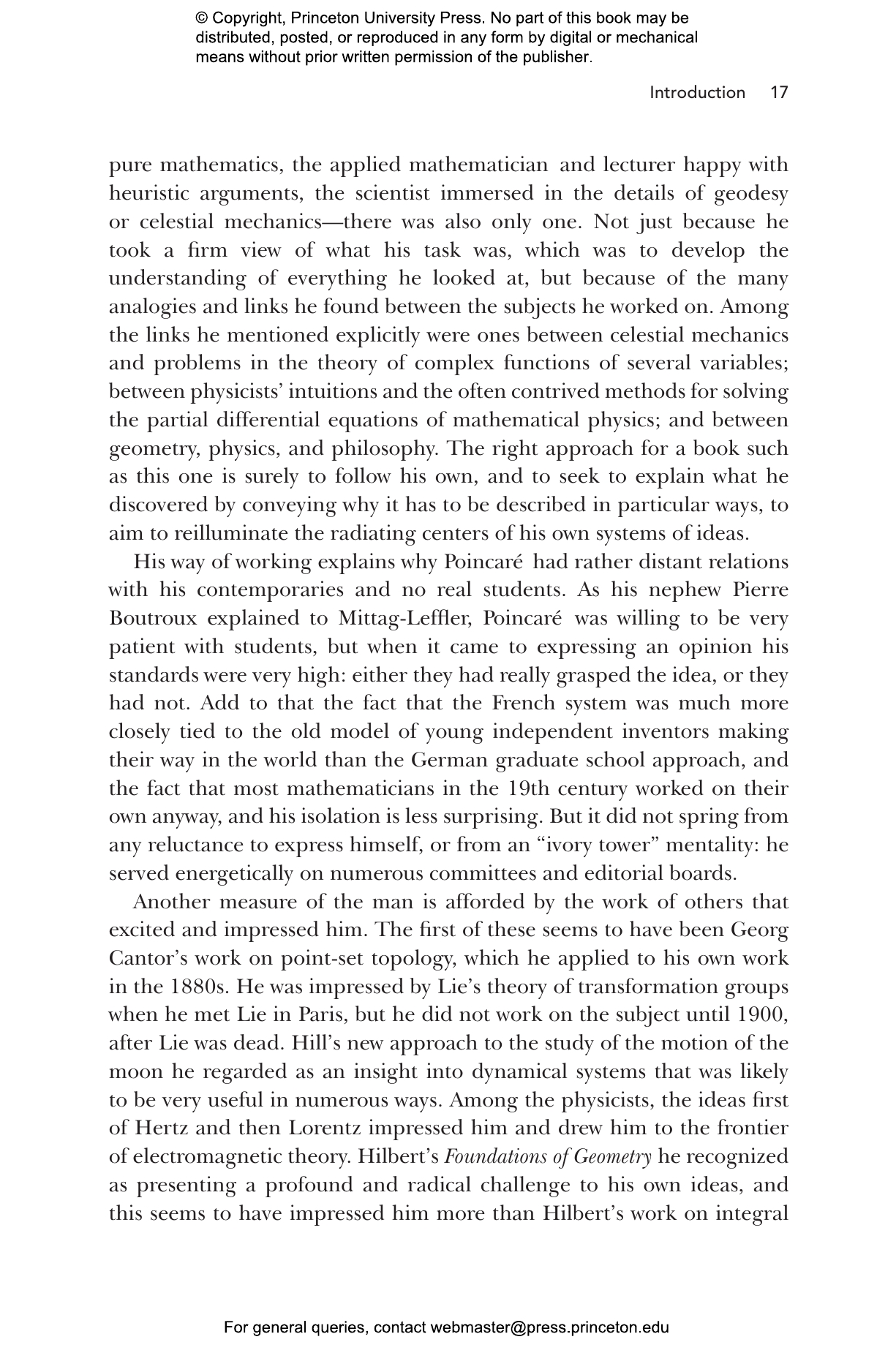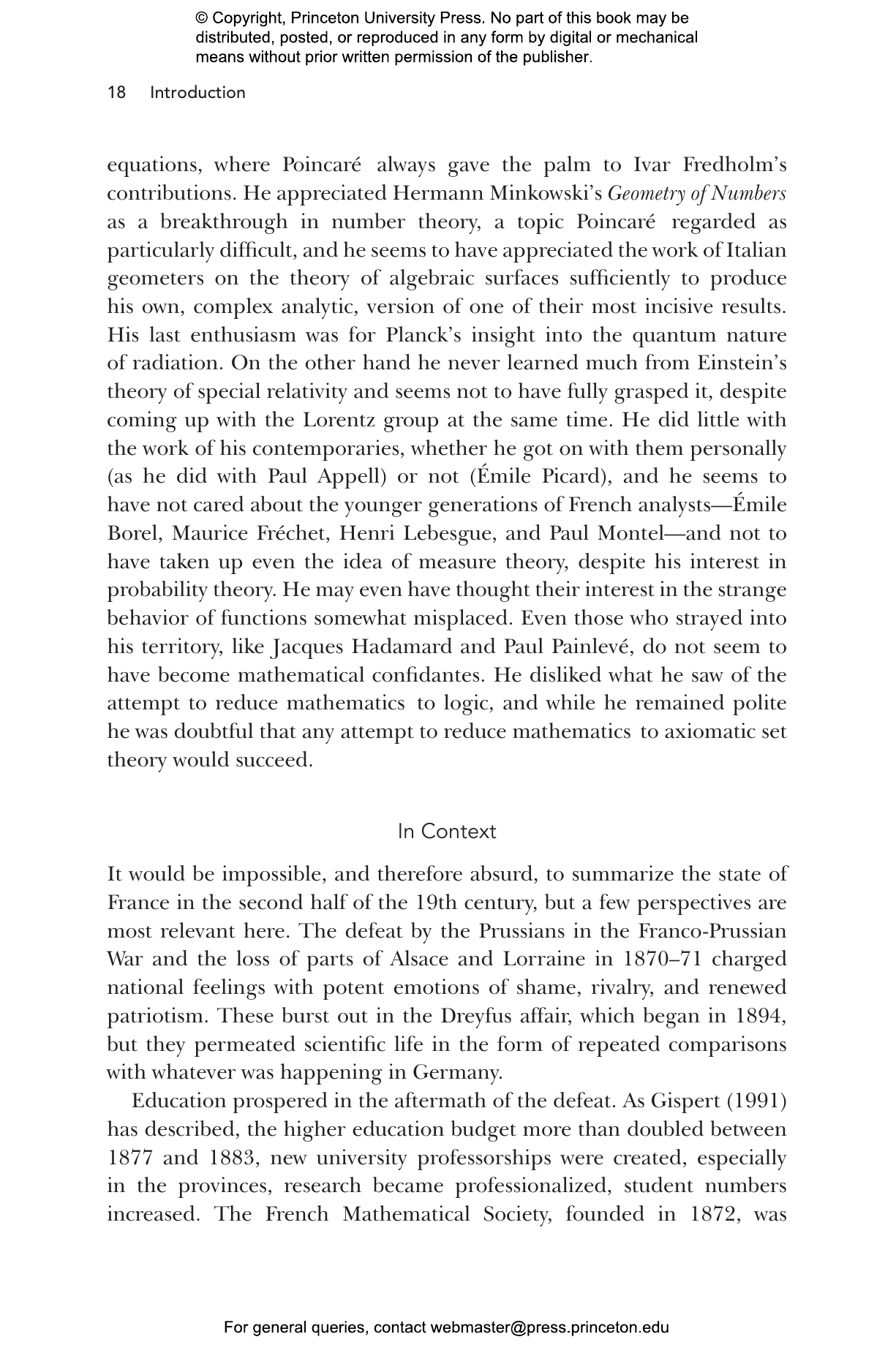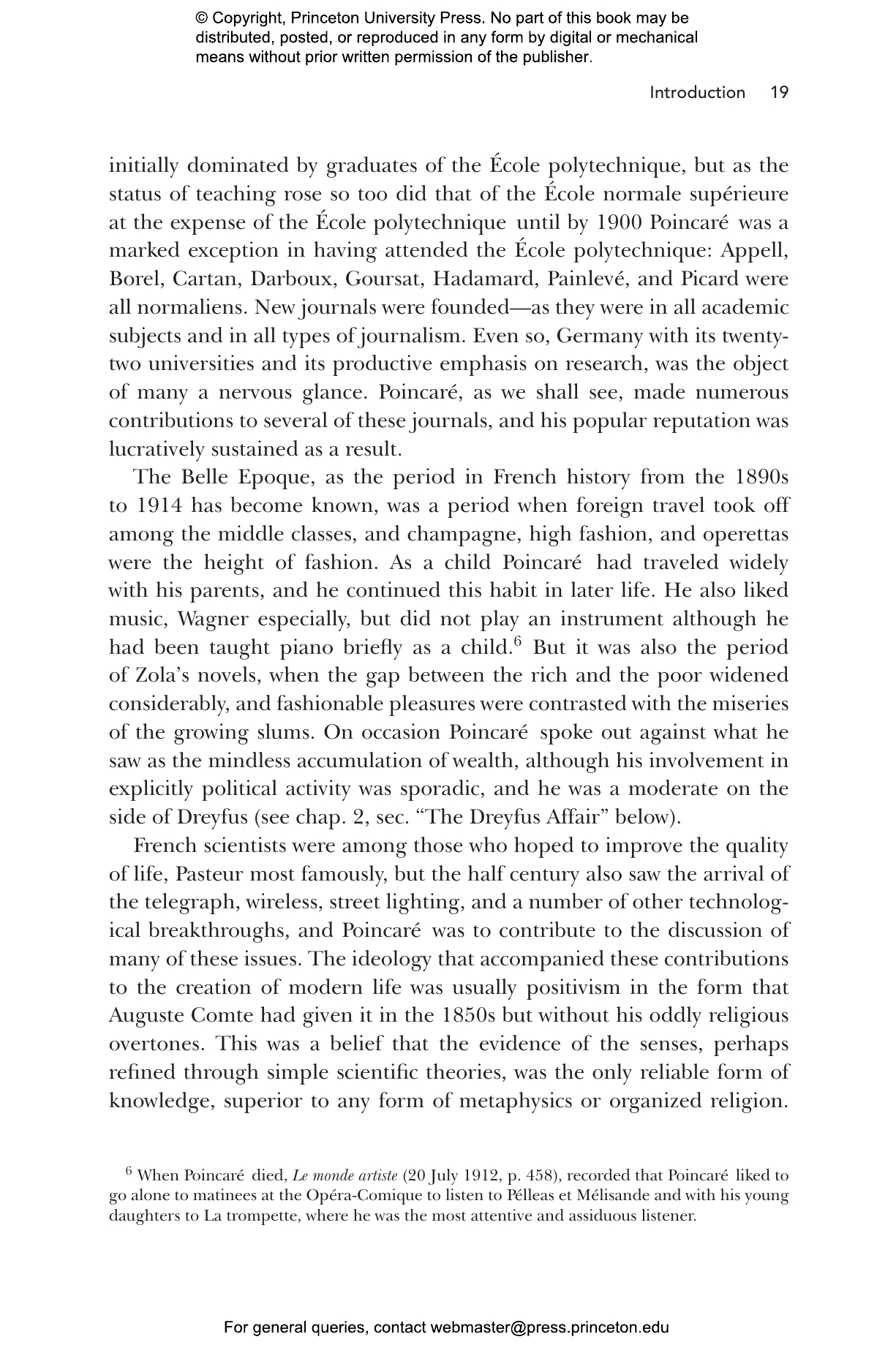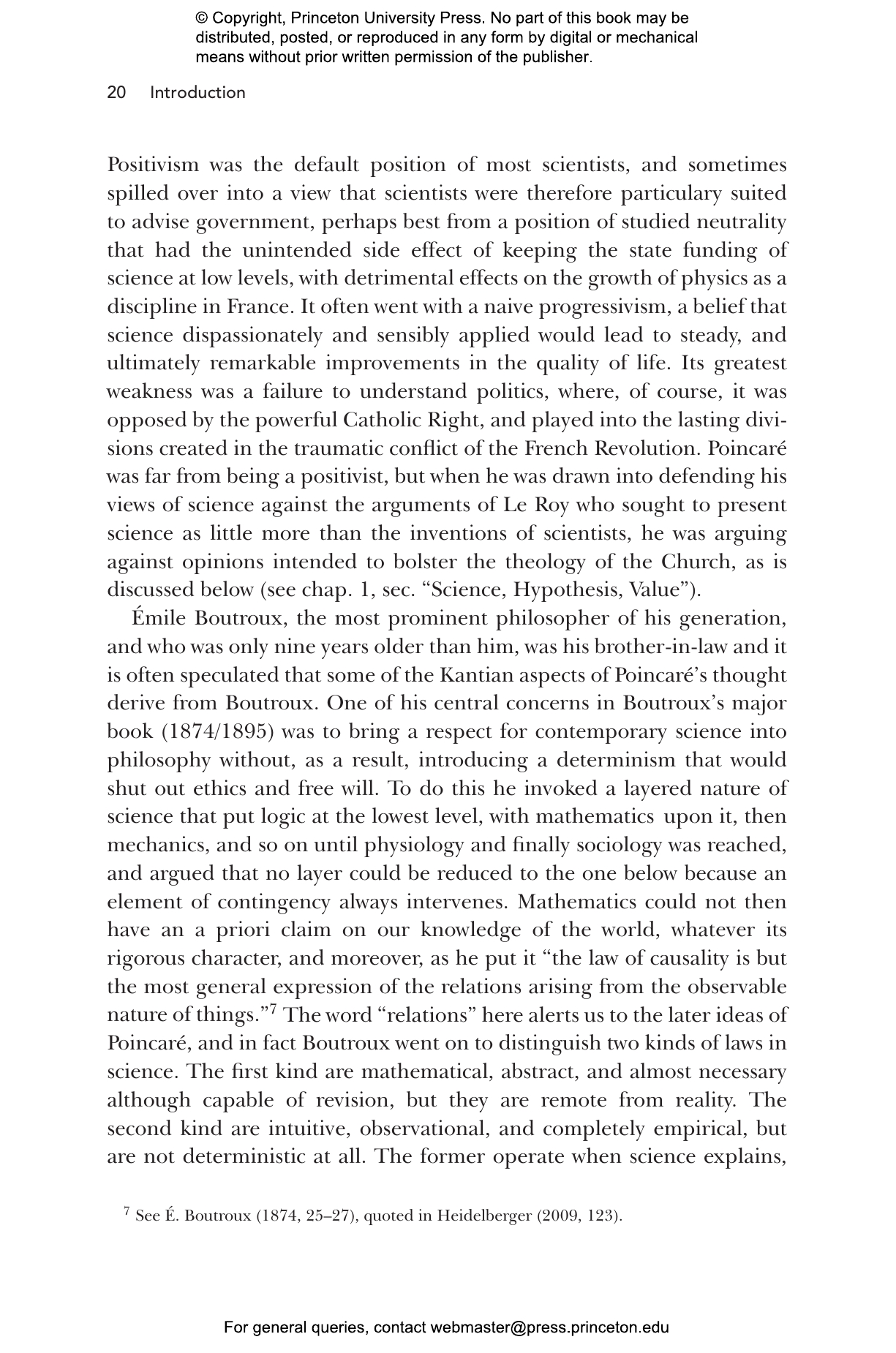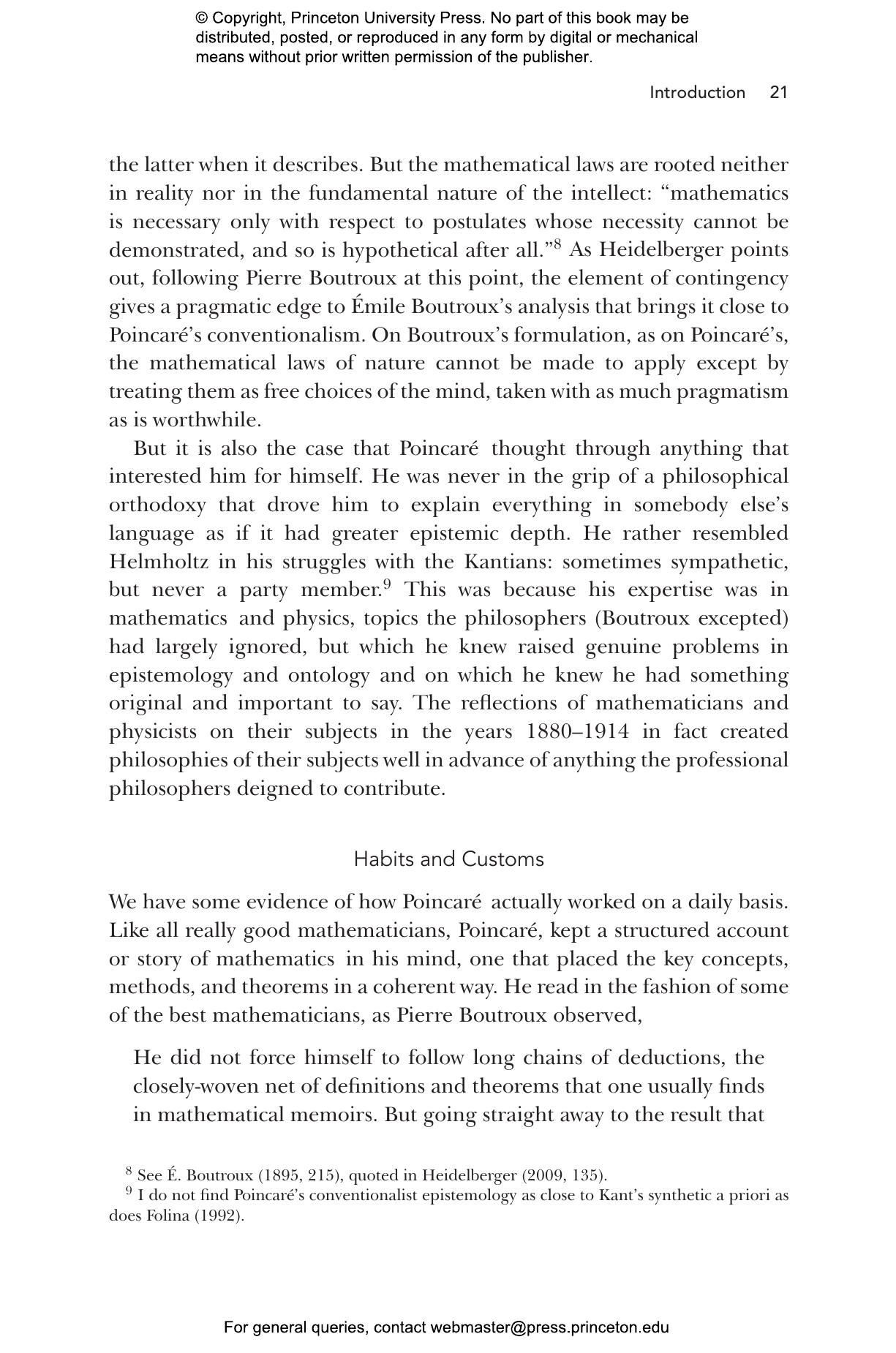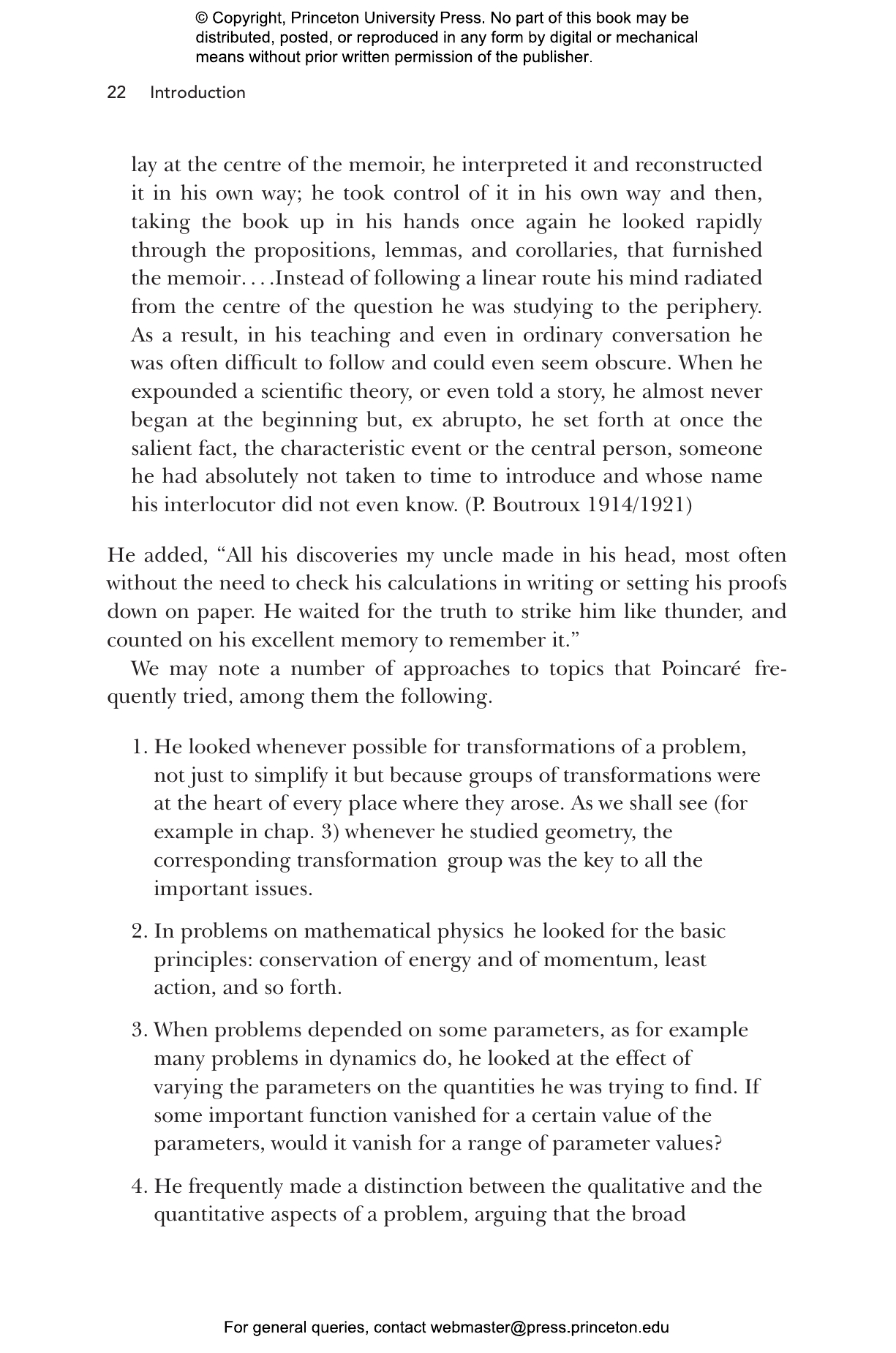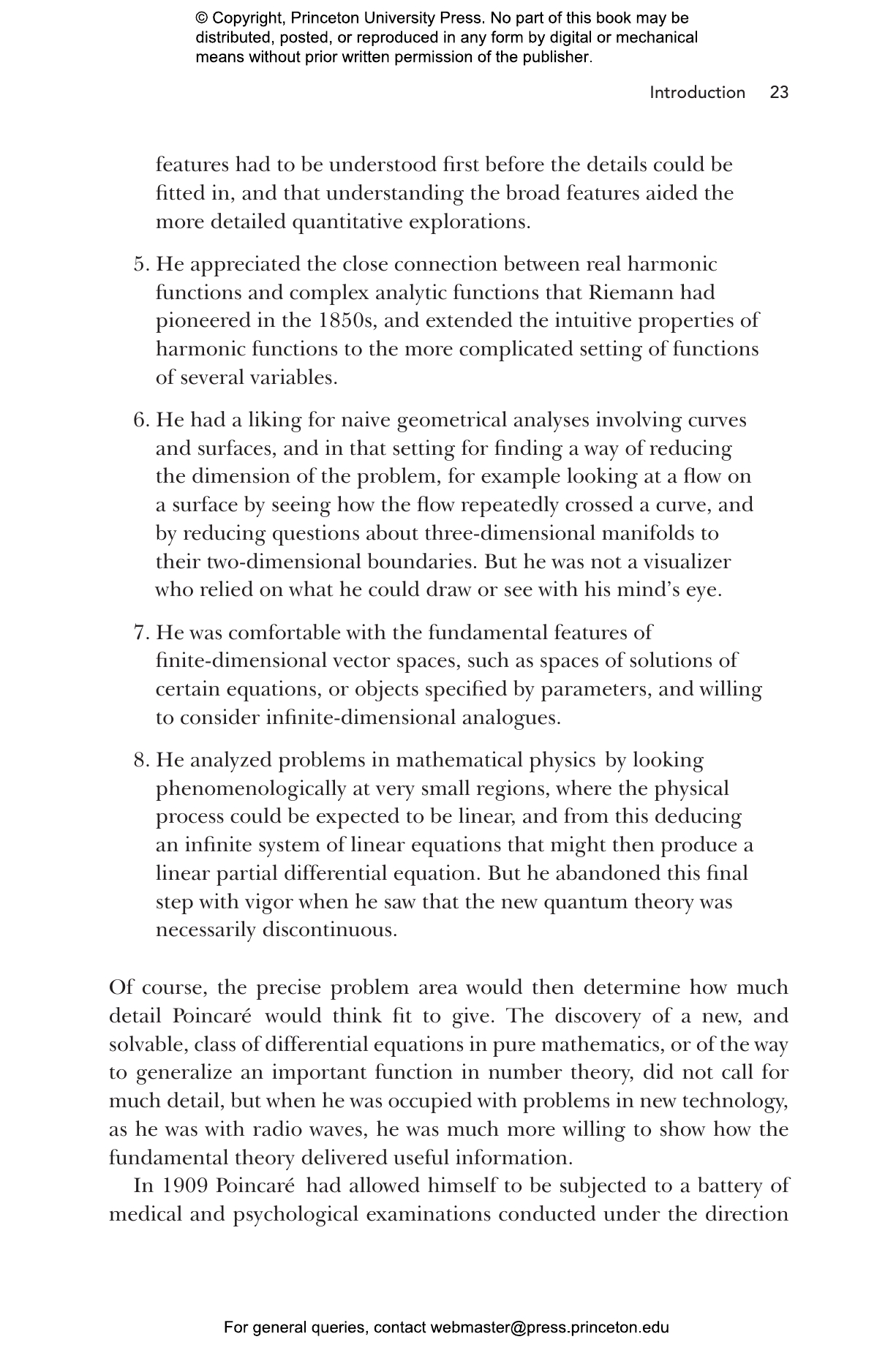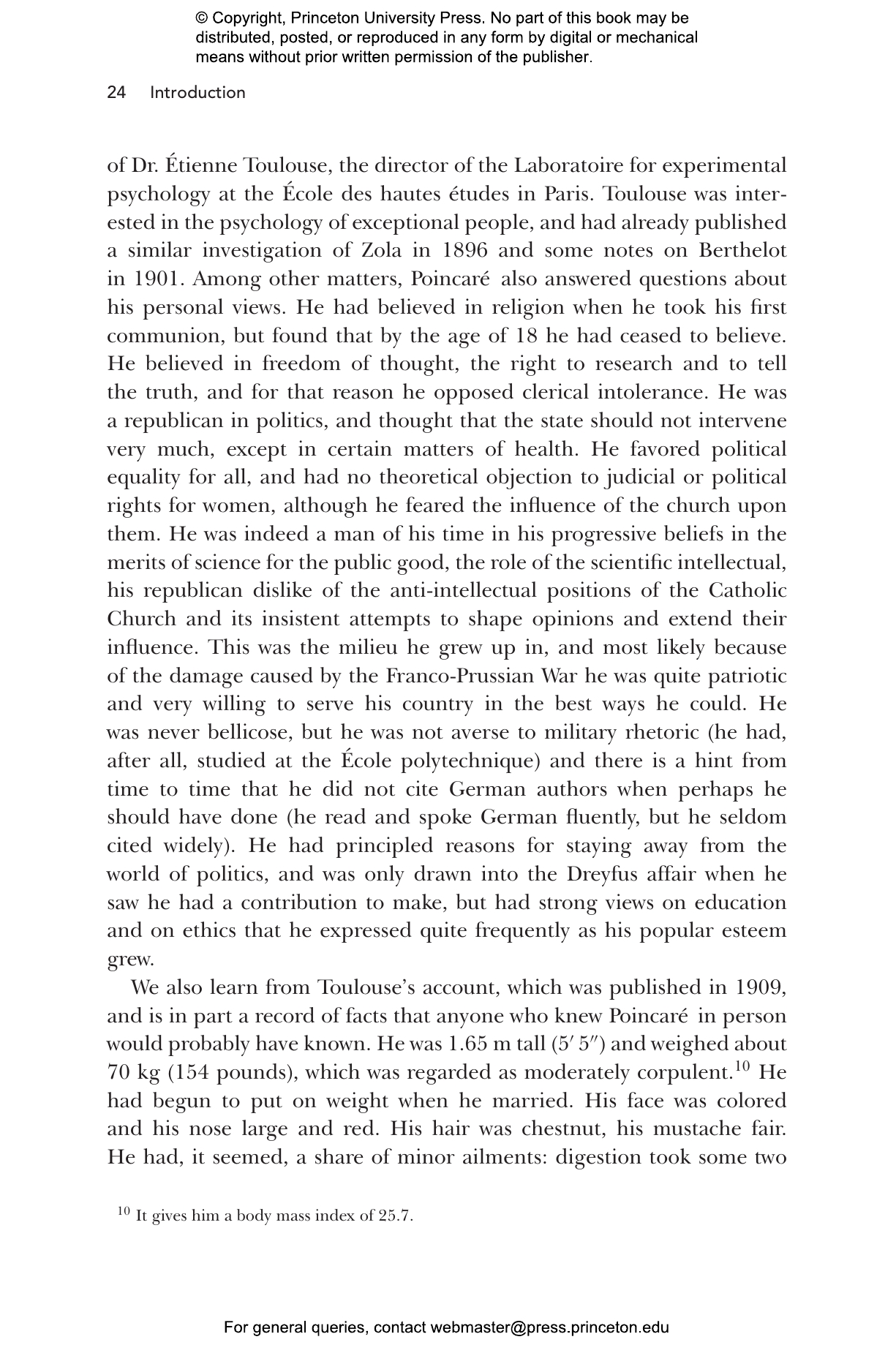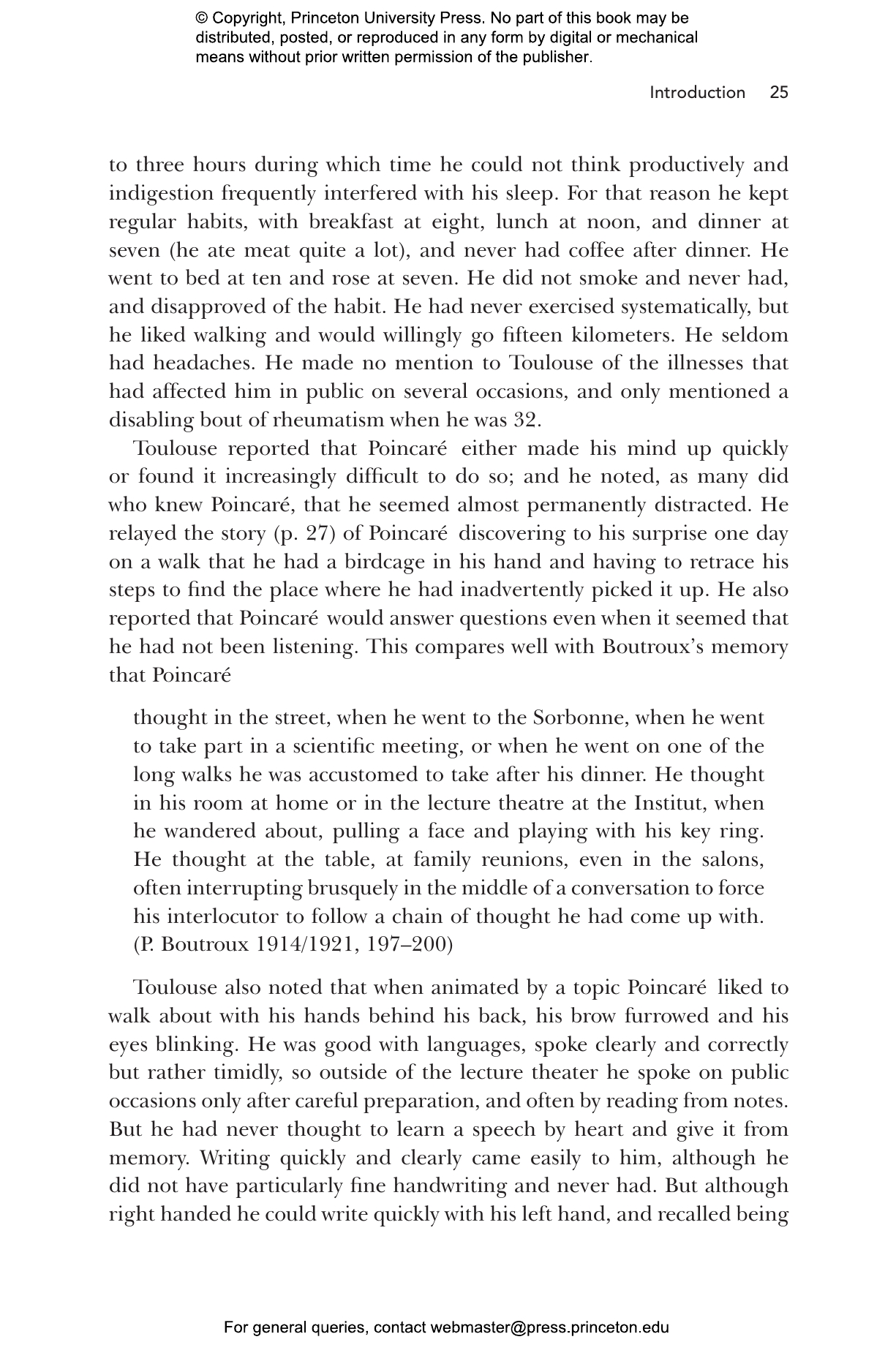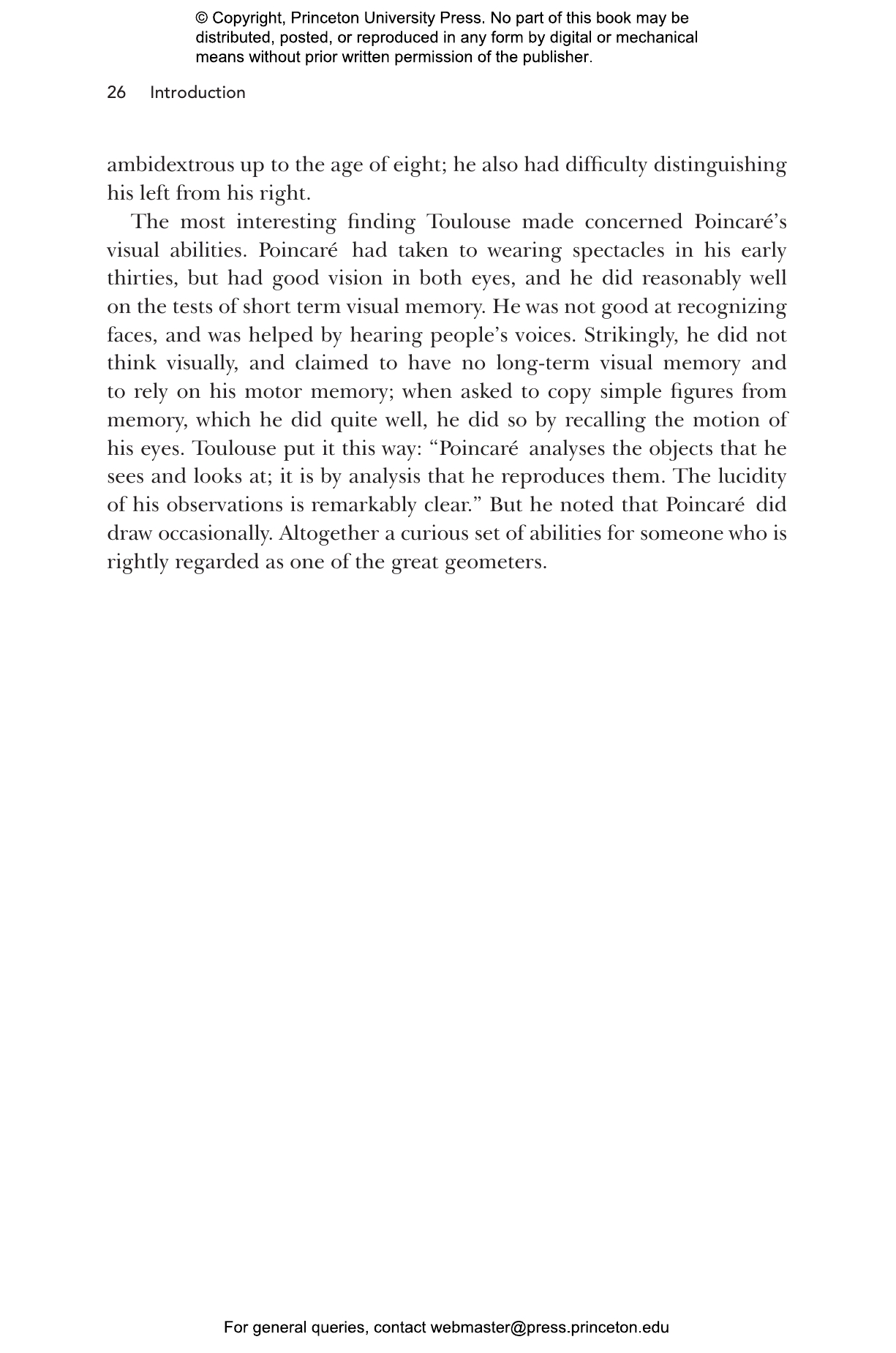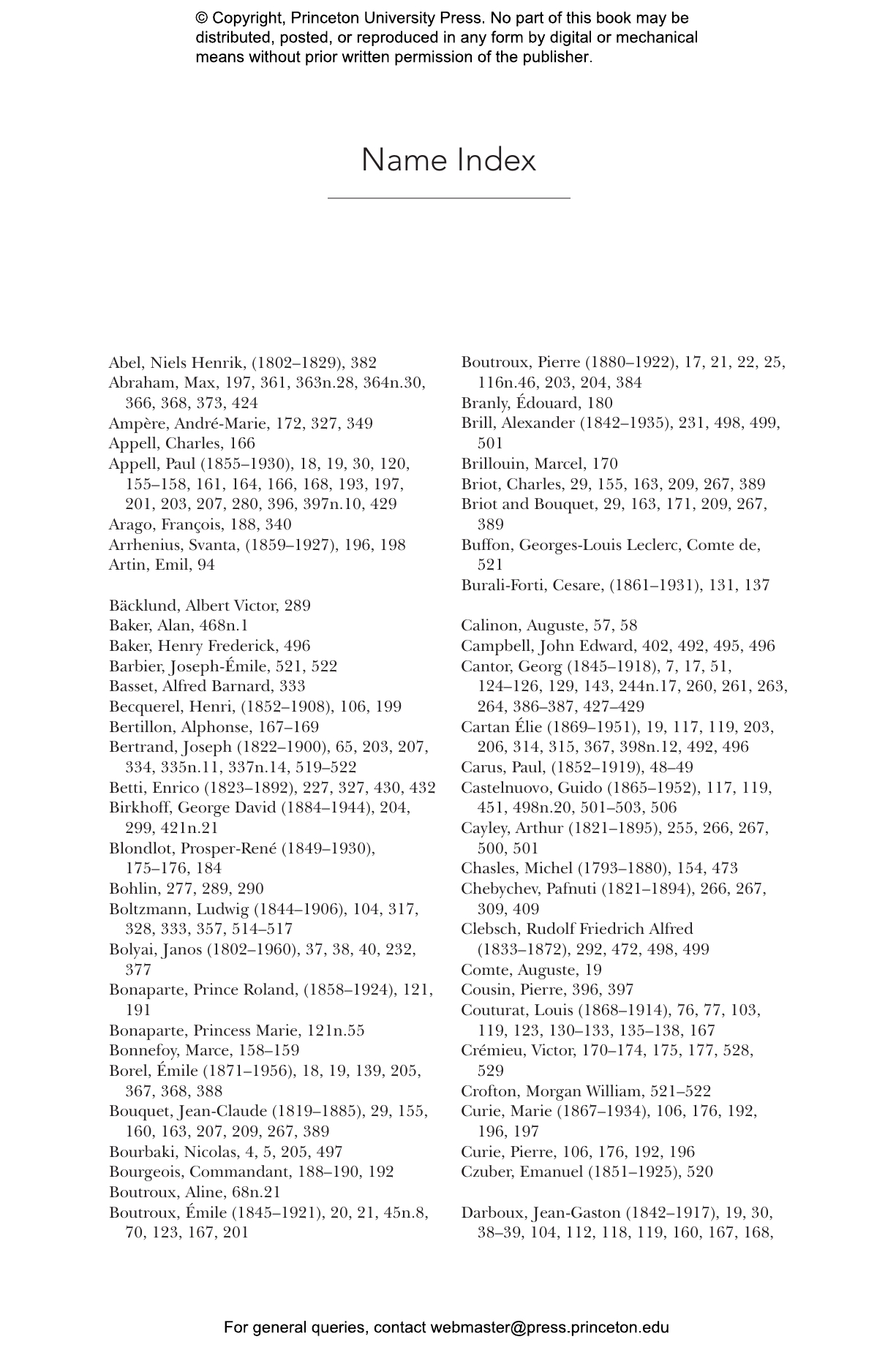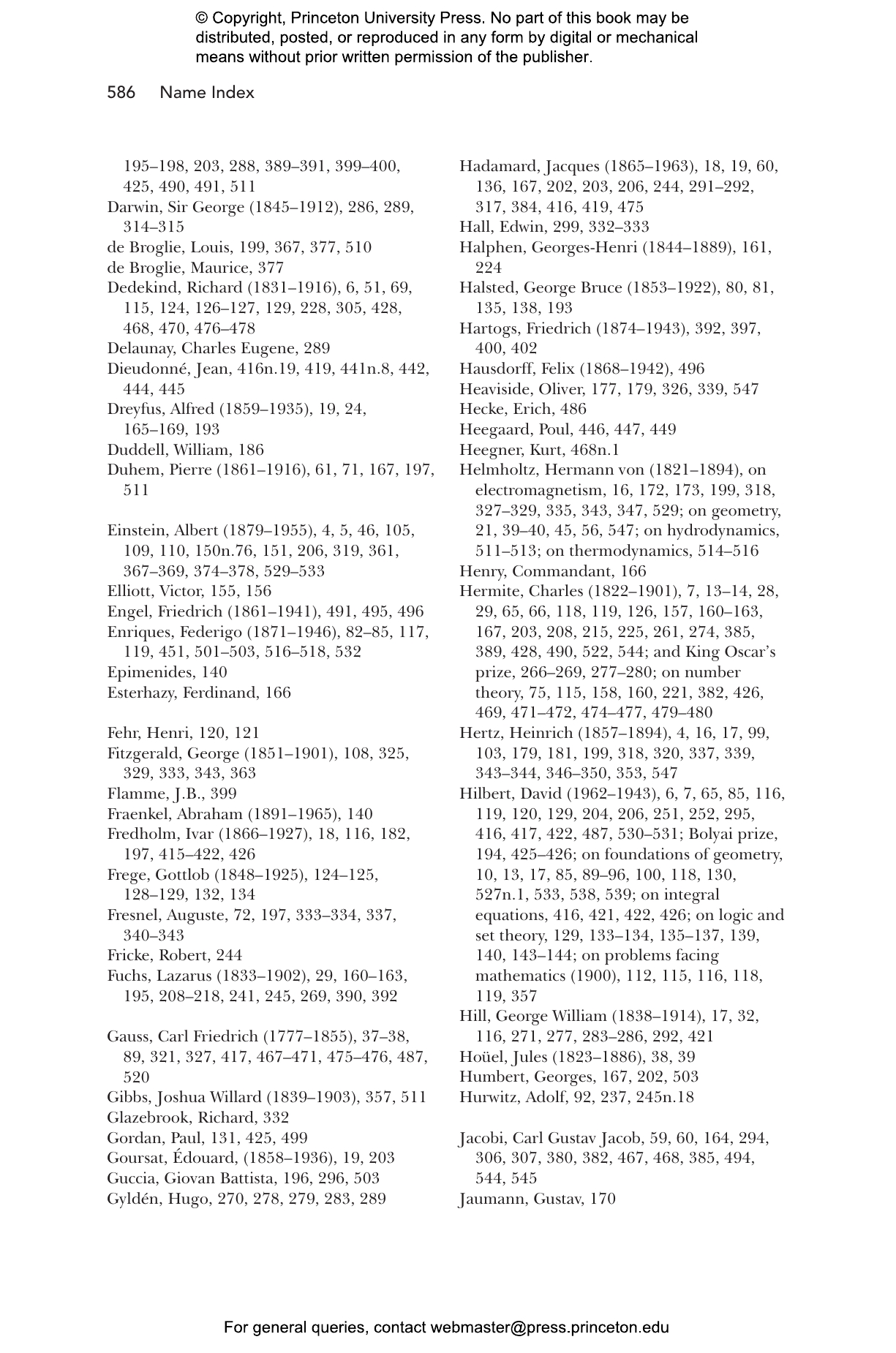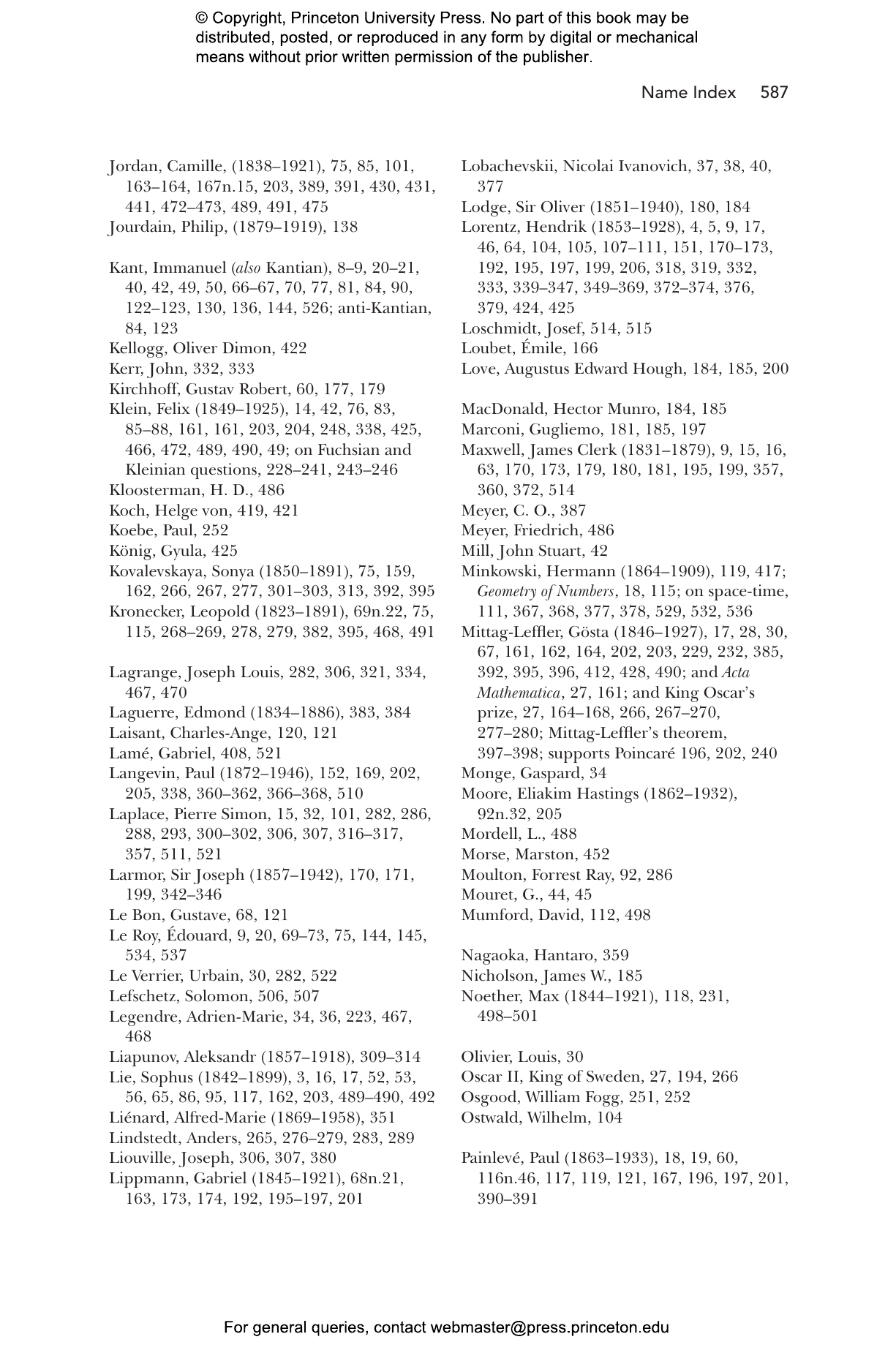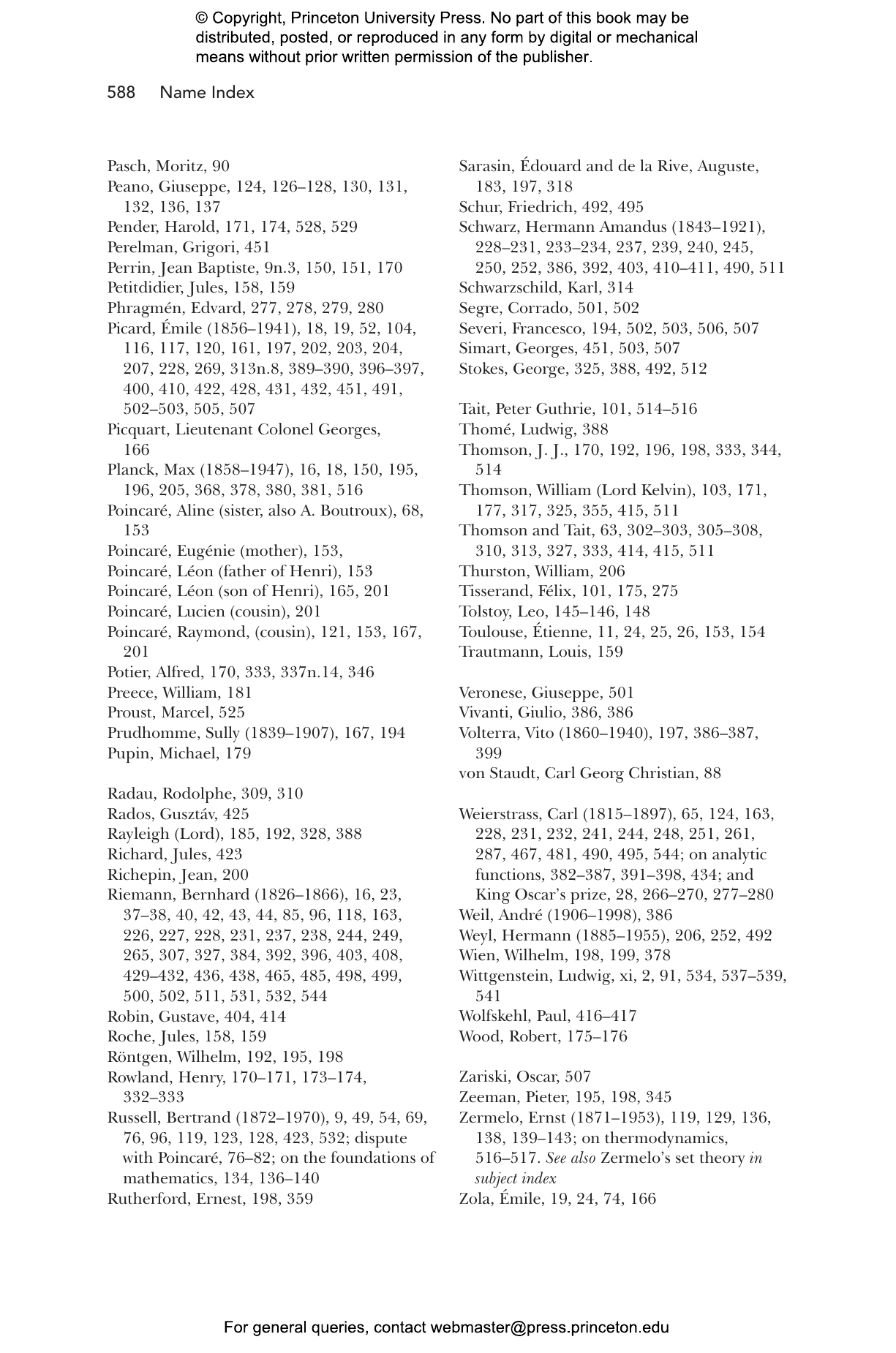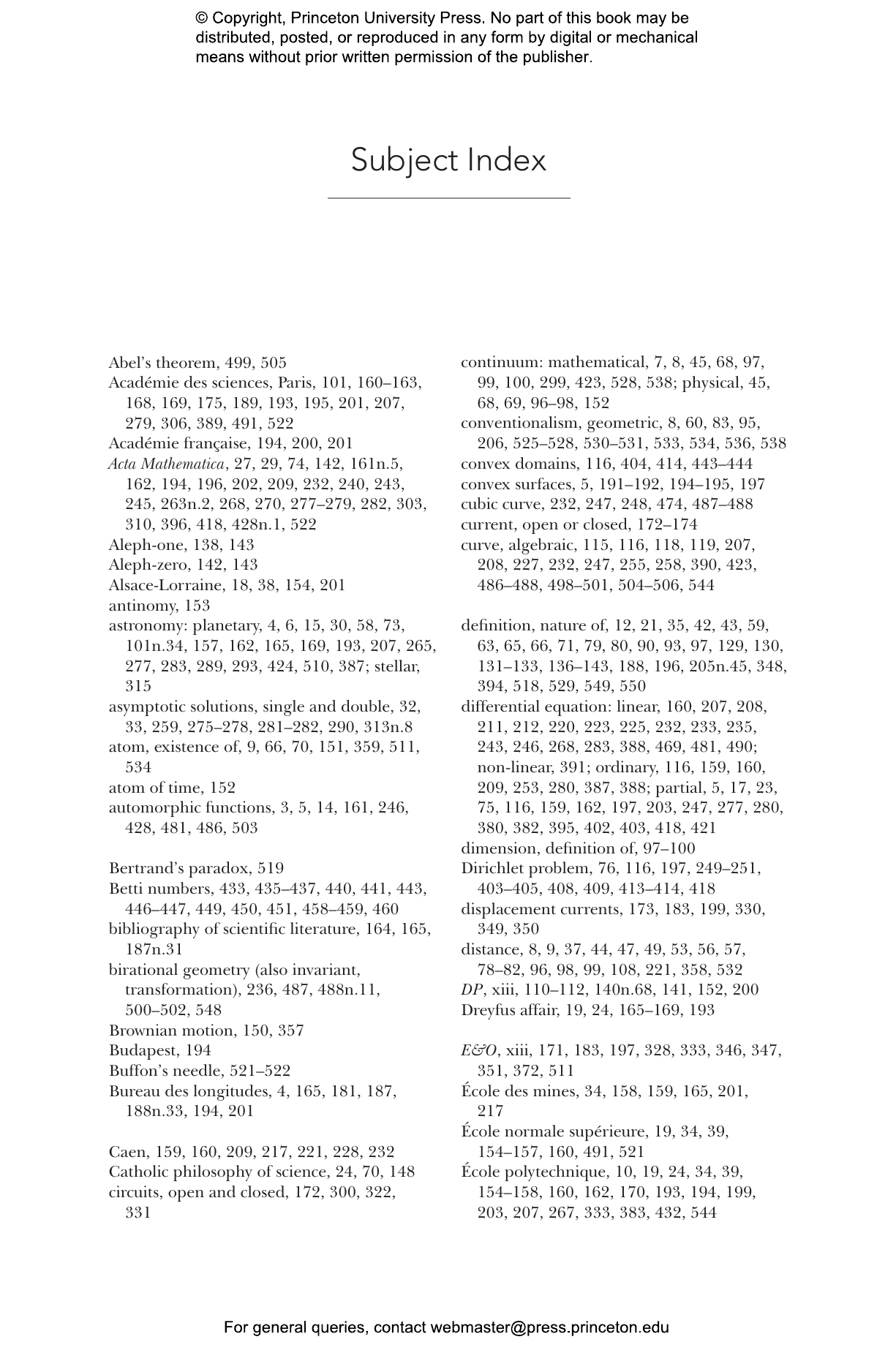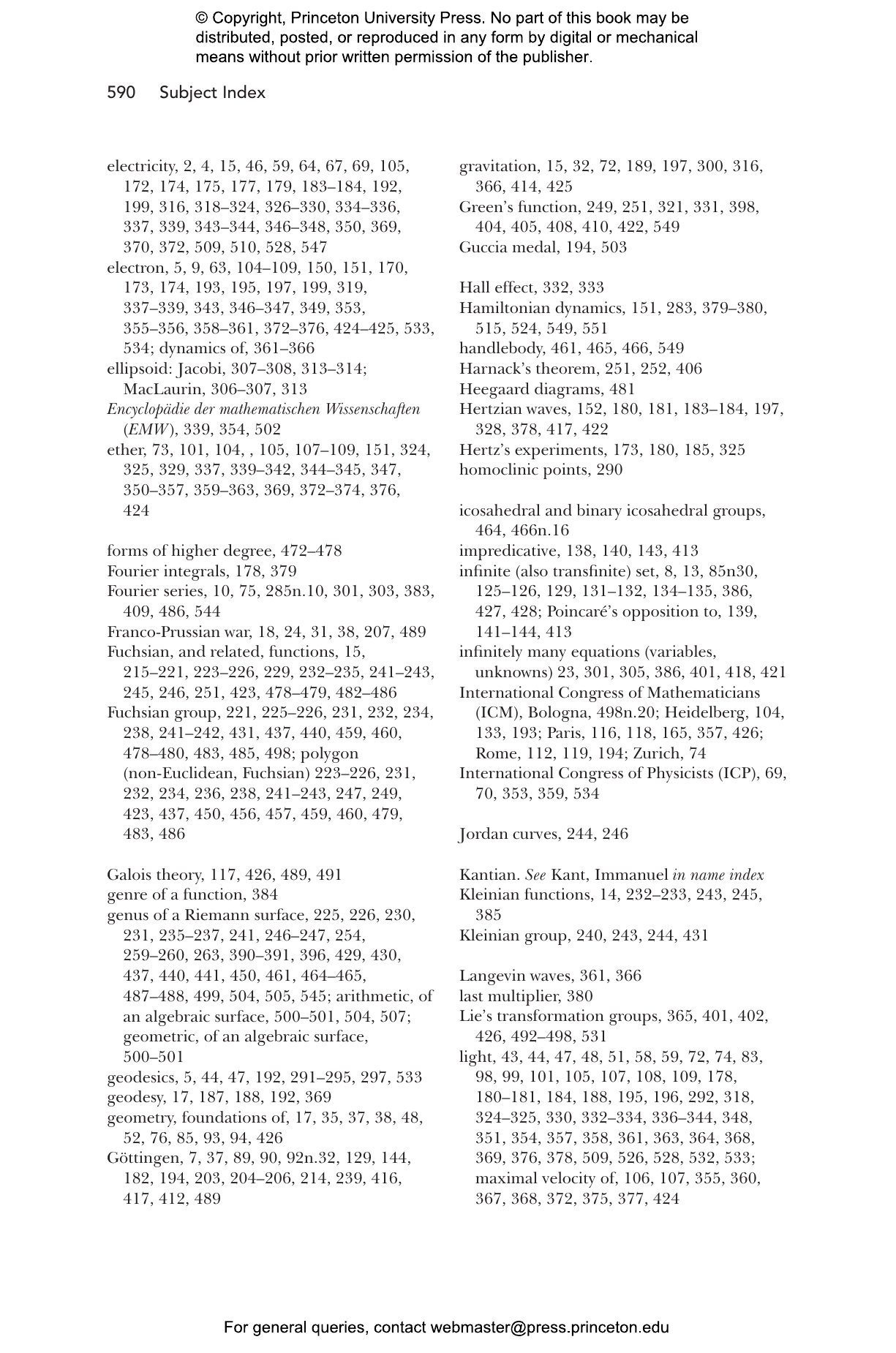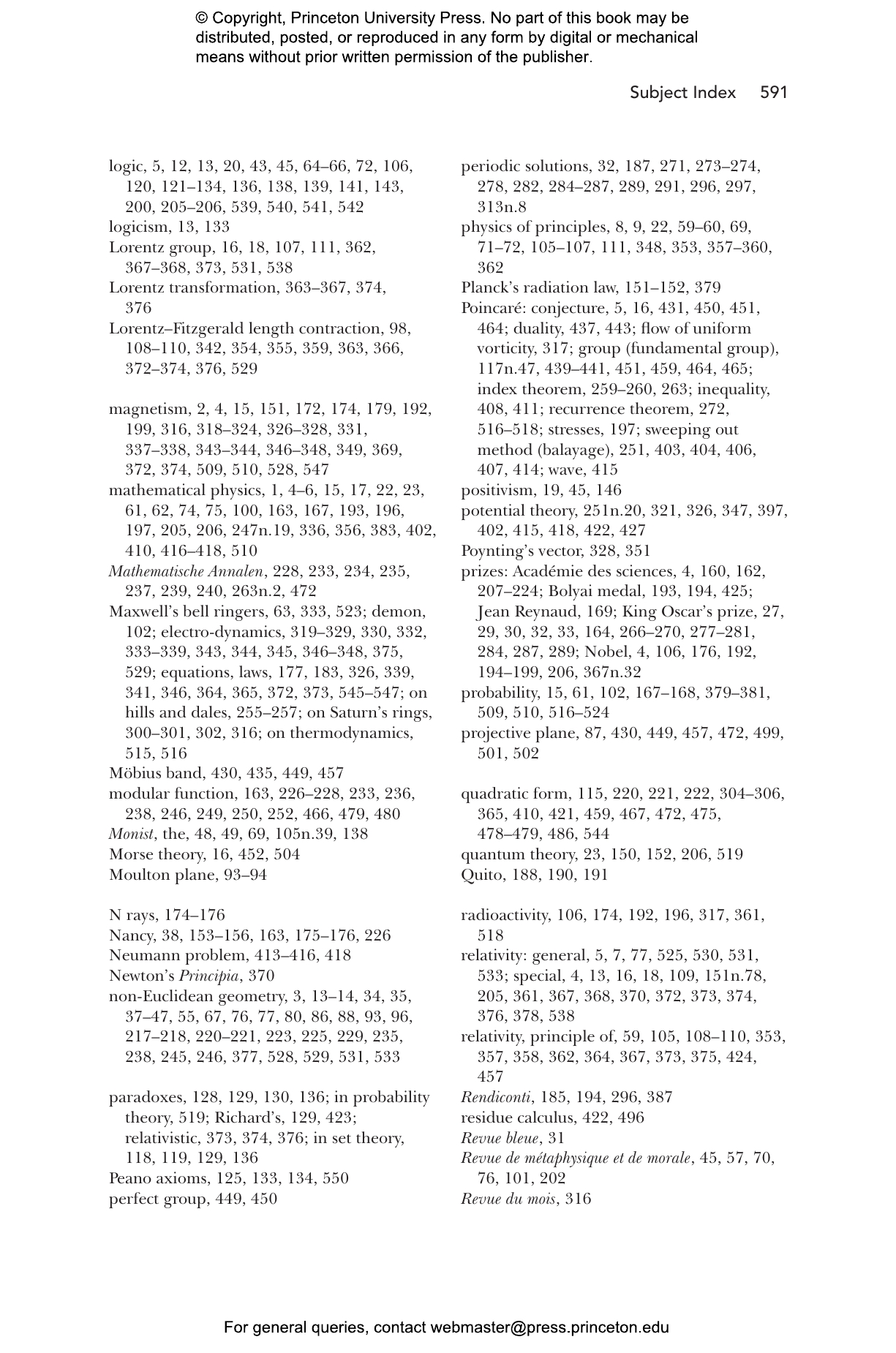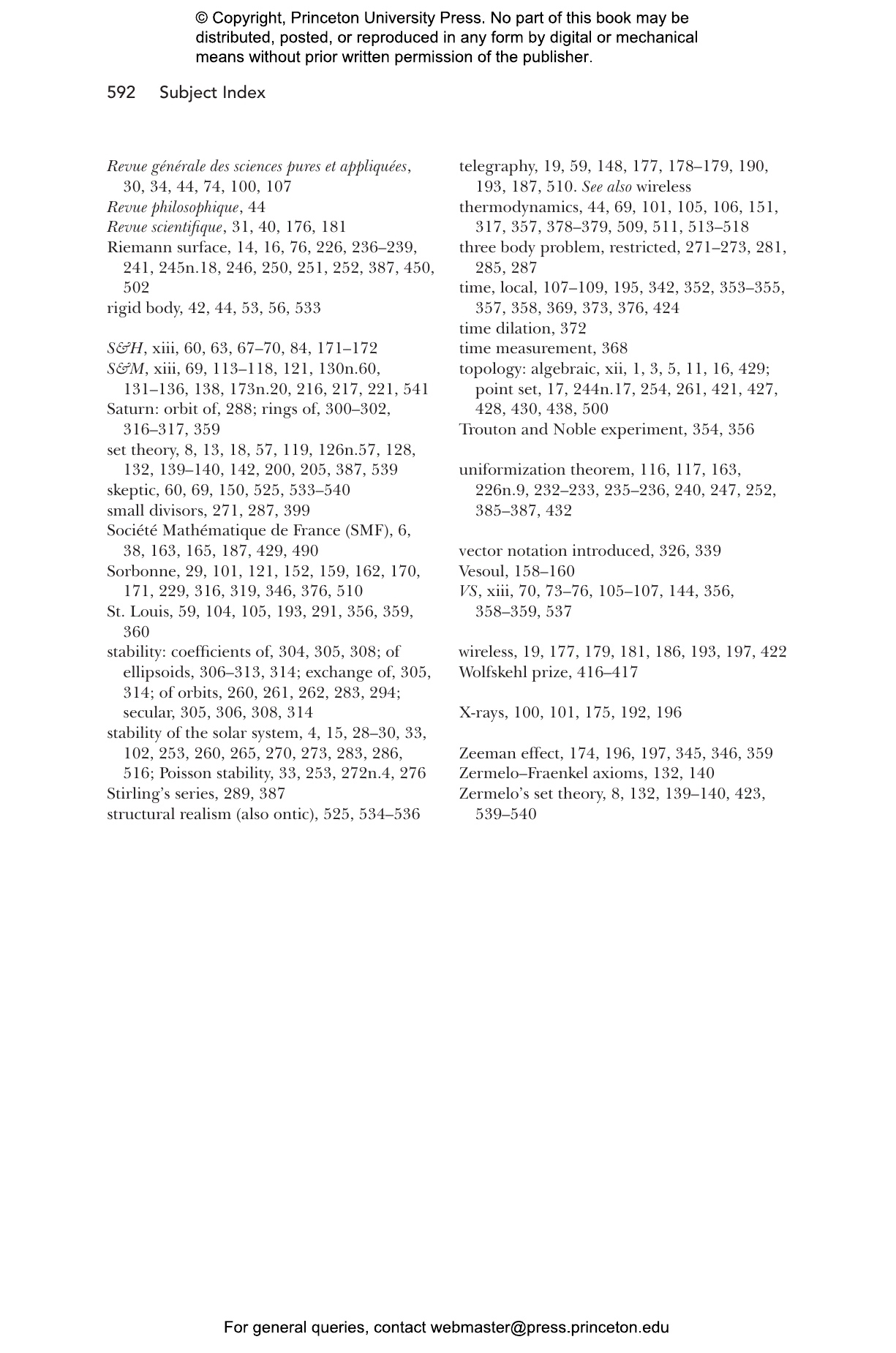Henri Poincaré (1854–1912) was not just one of the most inventive, versatile, and productive mathematicians of all time—he was also a leading physicist who almost won a Nobel Prize for physics and a prominent philosopher of science whose fresh and surprising essays are still in print a century later. The first in-depth and comprehensive look at his many accomplishments, Henri Poincaré explores all the fields that Poincaré touched, the debates sparked by his original investigations, and how his discoveries still contribute to society today.
Math historian Jeremy Gray shows that Poincaré’s influence was wide-ranging and permanent. His novel interpretation of non-Euclidean geometry challenged contemporary ideas about space, stirred heated discussion, and led to flourishing research. His work in topology began the modern study of the subject, recently highlighted by the successful resolution of the famous Poincaré conjecture. And Poincaré’s reformulation of celestial mechanics and discovery of chaotic motion started the modern theory of dynamical systems. In physics, his insights on the Lorentz group preceded Einstein’s, and he was the first to indicate that space and time might be fundamentally atomic. Poincaré the public intellectual did not shy away from scientific controversy, and he defended mathematics against the attacks of logicians such as Bertrand Russell, opposed the views of Catholic apologists, and served as an expert witness in probability for the notorious Dreyfus case that polarized France.
Richly informed by letters and documents, Henri Poincaré demonstrates how one man’s work revolutionized math, science, and the greater world.
Awards and Recognition
- One of Choice's Outstanding Academic Titles for 2013
"Masterly. . . . Gray encapsulates Poincaré's multiple dimensions; his intellectual biography is both a tour de force and a triumph of readability."—George Szpiro, Nature
"Gray shows us the full dazzling sweep of what Poincaré accomplished, including the work on dynamical systems and chaos that only came into its own in recent years. A tour de force, Gray's masterful treatment will long remain an invaluable resource for all who want to understand Poincaré, so embedded within his times and yet so far ahead of them."—Peter Pesic, Science
"[A] comprehensive but uncluttered guide to Poincaré's extensive oeuvres."—Madeline Muntersbjorn, Times Higher Education
"Full of the mathematical, physical and metaphysical ideas of a man who was not only a dispassionate observer of the world around us, but of our way of understanding it."—Mark Ronan, Standpoint Magazine
"[A] comprehensive assessment of Poincare's work and its importance, essential for anyone interested in Poincare's scholarship or the history of mathematics."—Laura Tarwater Scharp, Sacramento Book Review
"Comprehensive."—Science News
"A fundamental study of the scientific work of one of the greatest mathematicians and mathematical physicists of the three decades straddling the 19th and 20th centuries. . . . Chapters are organized topically, not chronologically. Each illuminates in depth one or other of Poincaré's works but all are set in context both historical and temathic such that each can serve as an introduction into the many subjects to which Poincaré made a contribution."—Alexander Bogomolny, CTK Insights
"Poincare's work is fully alive in science today. This biography is one of the first thorough introductions to his work, it should get the attention of mathematicians, natural scientists and philosophers."—Ferdinand Verhulst, European Legacy
"Gray, a mathematics historian and scholar on the life and work of Henry Poincaré, has, with the support of a Leverhulme Research Fellowship, produced this comprehensive and definitive 'scientific biography.' Gray offers abundant rich information on Poincaré's ideas and scientific process, the evolution and maturity of his mathematics including missteps, the dexterity of his reasoning, and the influences that shaped his thought."—Choice
"I recommend [this] book highly."—Robert E. O'Malley, Jr., SIAM Review
"Jeremy Gray's book on Poincaré's mathematics, physics, and philosophy is an important contribution to the literature and a huge step towards a full biography of this pioneer of
modern science."—Reinhard Siegmund-Schultze, Zentralblatt MATH
"Gray's book is a comprehensive scientific biography of Poincare. It embraces the broad scope of Poincare's work, from his philosophical speculations to his popular writing, and gives a thorough overview of his extensive mathematical researches."—Peter Lynch, Irish Mathematical Society Bulletin
"[T]he author does not simply give platitudes when writing about Poincare's ideas: mathematicians will enjoy reading about his discoveries concerning the three-body problem, the theory of functions, topology, number theory, Lie theory, algebraic geometry, and probability. This scientific biography is the first to comprehensively cover all of Poincare's main contributions to mathematics, philosophy, and physics."—Alan S. McRae, Mathemematical Reviews Clippings
"Jeremy Gray has done a marvelous job of exposition and of binding together the many different cognitive, social and biographical strands into the coherent whole of a challenging, but highly rewarding, 'scientific biography'."—Klaus Hentschel, British Journal for the History of Science
"A good intellectual biography of an artist should help the reader see how a particular worldview shapes the pursuit of art. Gray's book does that most admirably."—Daniel S. Alexander, H-France Review
"Henry Poincaré is likely to remain the standard by which scientific biographies, at least those that concern physicists and mathematicians, are judged for some time."—Christopher Cumo, Canadian Journal of History
"I warmly recommend the book to anyone with an interest in the development of modern mathematics. It will surely be the definitive scientific biography of Poincare for the foreseeable future."—John Stillwell, Notices of the AMS
"Gray describes Poincaré's scientific epoch in a beautiful way. Due attention is paid to the mathematical and further scientific aspects of his life, and the intellectual complexity of his achievements, both in their range and their depth, are amply discussed. Gray displays a mastery of his material that is rare even among historians of mathematics and science, and his biography is richly rewarding, engrossing, and informative. He deserves our congratulations."—H. W. Broer, Journal of the British Society for the History of Mathematics
"Gray succeeds admirably in presenting both the conceptual and the historical context necessary to appreciate Poincaré's contributions. Gray's masterful biography may well serve as a standard example for future endeavors of this kind."—Tilman Sauer, Isis
"The obvious virtue of this book is its comprehensiveness. The deeper virtue is to connect Poincaré's views of all the parts of his work and to encourage more of that. Gray gives us Poincaré's view of Science as a whole."—Colin McLarty, Mathematical Intelligencer
"The book is an endless source of interesting insights by Poincaré. . . . I would recommend the book for mathematicians, mathematics educators, and philosophers in higher education who want a rich understanding of Poincaré, his work, and his times."—Mary L. Garner, Mathematics Teacher
"Poincaré was much more than a mathematician: he was a public intellectual, and a rare scientist who enthusiastically rose to the challenge of explaining and interpreting science for the public. With amazingly lucid explanations of Poincaré's ideas, this book is one that any reader who wants to understand the context and content of Poincaré's work will want to have on hand."—Dana Mackenzie, author of The Universe in Zero Words
"This engaging book recounts the achievements of Henri Poincaré, covering his mathematics, physics, and philosophy, and his activities as a public intellectual. He is an eminently worthy subject for an intellectual biography of this kind."—Benjamin Wardhaugh, University of Oxford
"This comprehensive scientific biography of Poincaré situates the scientist's life and work in the sociopolitical context of his era. Covering his varied and wide-spanning work—from the most philosophical to the most technical—this book gives the general reader a clear historical sense of the man's voluminous accomplishments."—Jimena Canales, Harvard University
